
|
Epaper List
Submit
Subscibe
Publisher: Dean Shu-Chuan Yeh Publish Date:2023-05-31
|
 |
|
 |
|
|
News Report 【Honor】Congratulations to Professor Chun-Tuan Chang of the Department of Business Administration for winning the E. Sun Academic Award, and becoming the first faculty member to receive the award! 【College of Management】New Faculty Interview - Assistant Professor Chin-Ho Lin, Department of Business Administration, NSYSU 【College of Management】 New Faculty Interview - Associate Professor Min-Nan Chen, Institute of Human Resource Management, NSYSU 【IBBA】Campus Visit to NSYSU - Hua Hin School English Program, Thailand 【IBMBA】Guest Lecture- Digital Transformation: Luxury or Necessity? 【IBMBA】Guest Lecture- Intellectual Capital Management 【College USR】Merit and Prospects for Sustainability 【College USR】Introduction to Consumer Protection Law |
News Report【Honor】Congratulations to Professor Chun-Tuan Chang of the Department of Business Administration for winning the E. Sun Academic Award, and becoming the first faculty member to receive the award!  The titles and abstracts of her papers are as follows: Introduction to the E. Sun Academic Award: 【College of Management】New Faculty Interview - Assistant Professor Chin-Ho Lin, Department of Business Administration, NSYSU 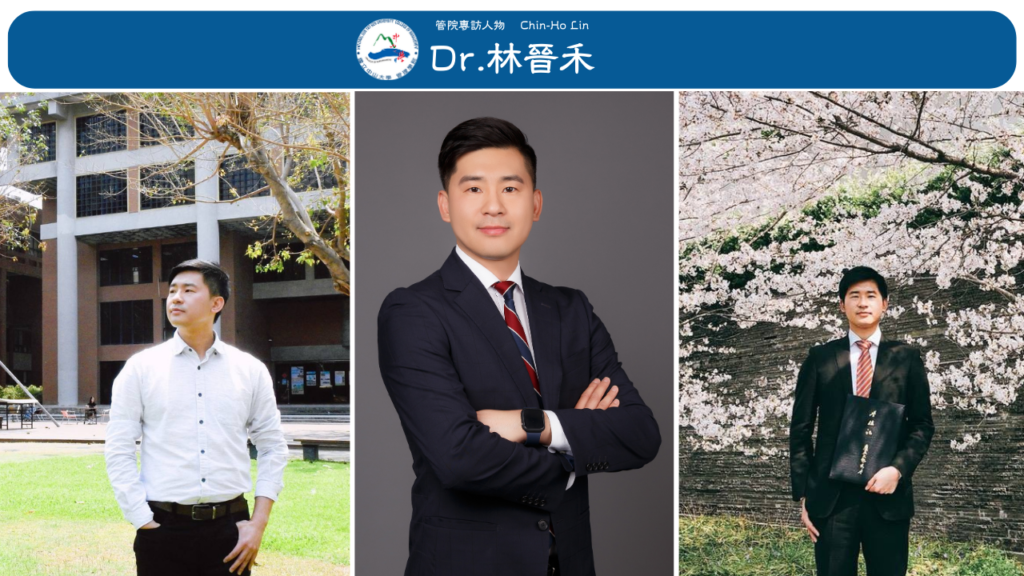 It was almost bedtime in the camp. Some men were resting and chatting, others were lining up to take a shower, and one soldier who was reading a book on economics at night, a very different atmosphere from the surroundings. The following day, he would have to go with the combat troops to drill and garrison a farm. Despite being in a very tough unit, he did not waste such a rare opportunity and tried to do everything well. "It doesn't matter how you fall; it's how you get up that matters.” This soldier is Chin-Ho Lin, who is now an assistant professor in the Department of Business Administration at National Sun Yat-sen University. He has always kept this statement in mind, because his starting point was not one that most people imagine of scholars, who are expected to have top grades since childhood. He laughed at himself for only being able to get into the Department of International Trade at a private university as an undergraduate, while yearning for the academic achievements of his relatives who taught at universities. “I’ve wanted to be a university professor since my freshman year of college.” Looking back on his past life, when he was about to leave the army, Chin-Ho Lin reflected that being a university professor requires a doctorate degree, but he didn’t even have a master’s degree. “If I want to achieve my dream, then what am I doing? Isn’t it time I start working hard to get ahead?” Even though his starting point was not as good as others’, Professor Chin-Ho Lin decided to start his new life against the odds. 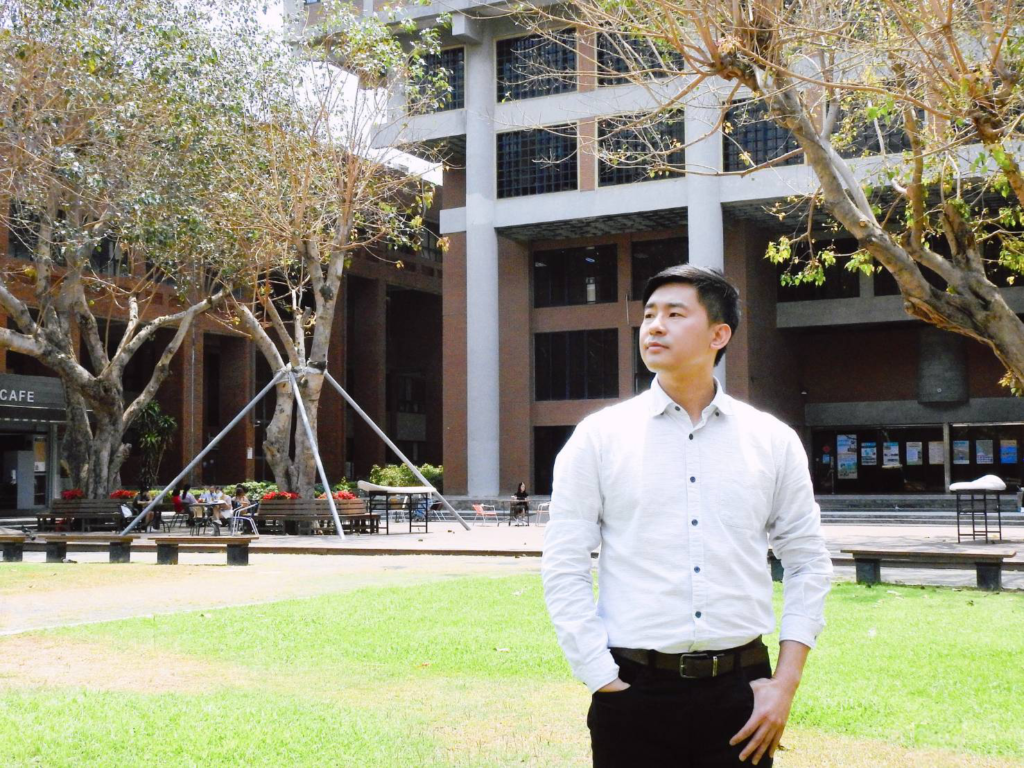 But, in the military environment, the seniors and peers come from all over, and higher-ups might make life difficult. Especially with Professor Lin being assigned to the combat unit, it was not even a given that he would be discharged without issues, let alone be able to cultivate of a habit of study. What could he do to focus on exam preparation? “Training is reasonable; what is unreasonable is torturing.” These were the words of Professor Lin’s father who always encouraged him, and he believes in them too. So even when he was assigned to the combat unit, when the commanding officers gave any orders, he was always eager to volunteer. He was so diligent that the commanding officers would say, “Does it always have to be Chin-Ho Lin? Have someone else do it!” Doing his job well, taking the initiative to help his unit, and making good use of his time to study were the keys to his survival in the military. “If you can do well even here, then no matter what happens, you will have a chance to survive.” Going half-way around the world to the United States and Japan With hard work, Chin-ho Lin turned his fate around, and two months after being discharged from the military, he was admitted to National Chung Hsing University to pursue a master’s degree in Applied Economics. His goal was a Ph.D. from Boston University, but his advisor, Professor Kuo-Yi Chang, said to him, “Chin-Ho, your university is already private, and like most students, you want to study in the United States and become a university teacher – what is going to make you stand out?” Professor Kuo-Yi Chang spoke frankly, but also pointed out the bright side: “To be competitive, the only advantage is the quality and quantity of your published papers.” 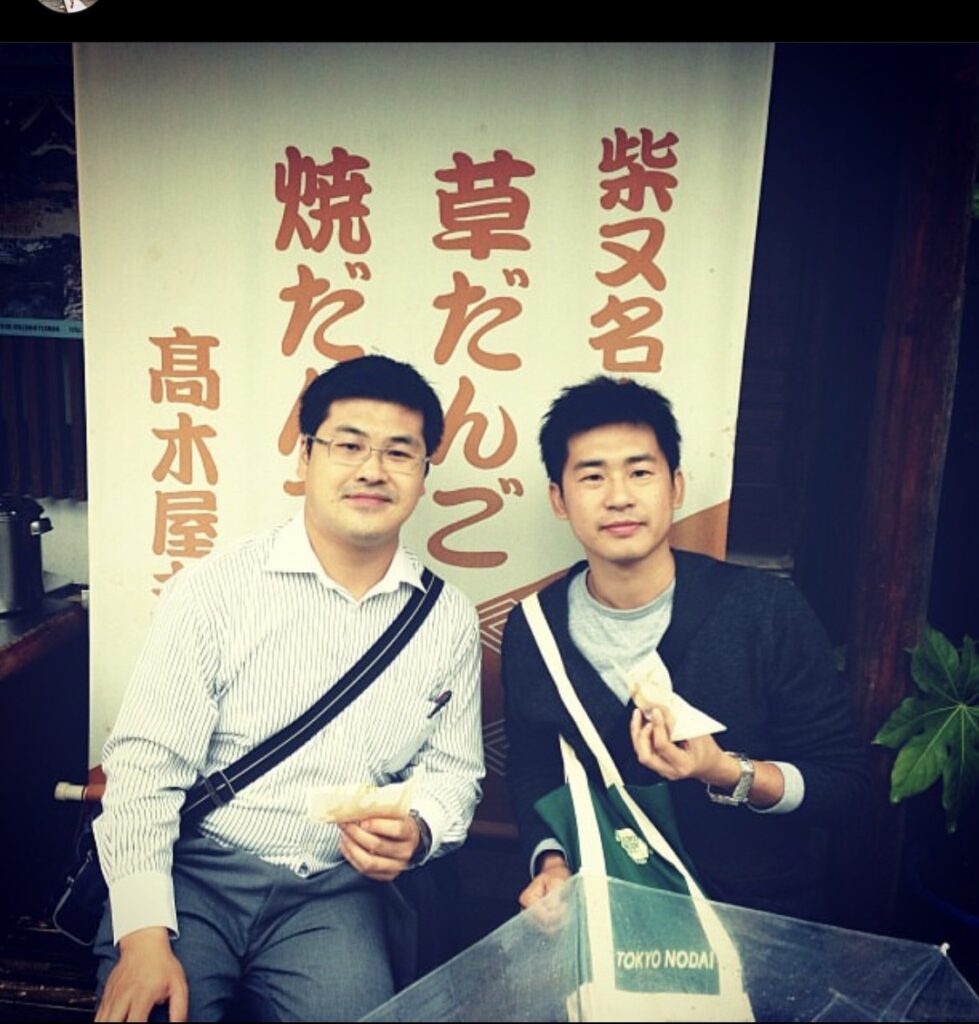 Professor Kuo-Yi Chang graduated from the Department of Agricultural Economics of the University of Tokyo, Japan. Therefore, he suggested that Chin-ho Lin also study in Japan and encouraged him to write his dissertation in English to make his dissertation more competitive and visible. Chin-ho Lin thought this made sense, so he prepared to study in Japan. But at this point, he was frustrated. It turned out that another student that Professor Chang supervised not only performed better but also successfully submitted his master’s thesis to TSSCI (a core social science journal). By comparison, Chin-Ho Lin realized he didn’t perform so well, and he felt confused. Was he really suitable for academia? In addition, given the declining birth rate, many relatives and friends of his advised against taking the academic route. However, his mother still supported his plan to study abroad and covered all the expenses of his studying in Japan, while his father was also very supportive of him pursuing a doctorate, so Chin-Ho Lin remained faithful to his dream. 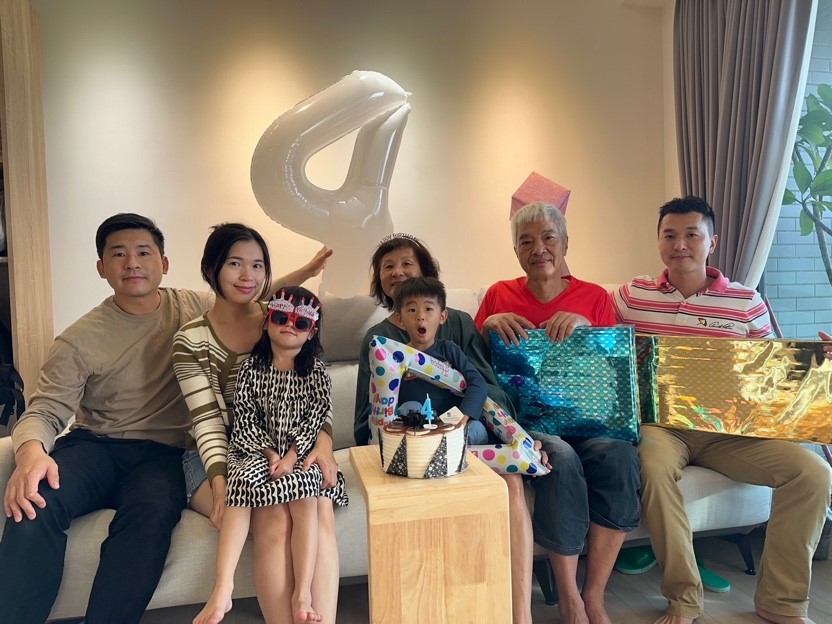 Chin-Ho Lin also aimed to study at the University of Tokyo; however, reality was cruel. In Japan, you need to find a supervising professor before applying for an interview at a university. In addition, unlike in the United States where you can apply to more than one school at a time, the tight examination timeline in Japan makes it almost like making one desperate bet. And this time, the bet did not pay off for Chin-Ho Lin. Chin-Ho Lin did not give up; he just temporarily put his dream aside. He decided to try again the following year, and in the meantime, choose to go to the United States for a year to see. He went to language school, and Chin-Ho Lin took to it like a fish to water. “America is great! The atmosphere is free, full of diversity and tolerance!” Professor Lin says. The United States is a country of great ethnic integration, respecting different cultures, and given his own bold personality, he especially liked the atmosphere and the way people get along with each other. 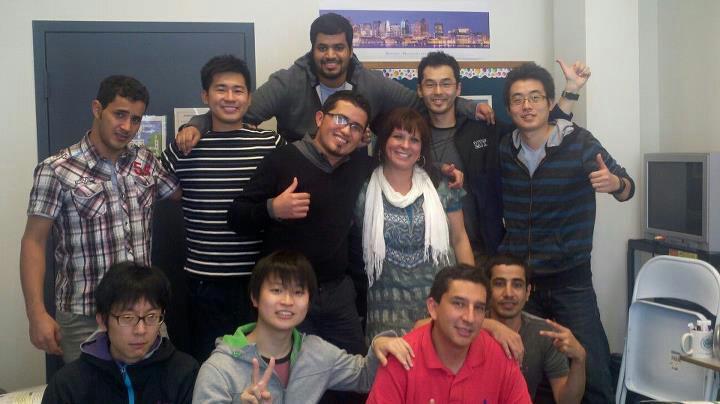 However, in the blink of an eye, it was time to take the entrance exam again. The second time, Chin-Ho Lin decided to bet on Keio University. “Actually, there was a lot of pressure.” For the month between the written examination to the interview results, he stayed in Japan alone, waiting to find out his uncertain future. On Chinese New Year’s Eve, Chin-Ho Lin could only attend his family reunion by video call. Unable to go home to eat with his family, his New Year’s Dinner was eating Ichiran Ramen by himself. Fortunately, Chin-Ho Lin was accepted into Keio University. He left the spirited United States to begin his study abroad life in strict Japan. 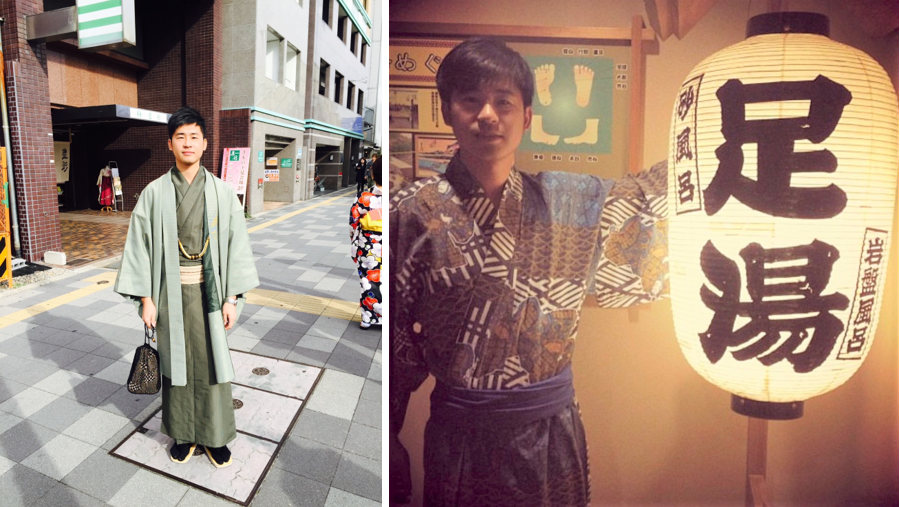 Couldn’t speak Japanese but received a doctorate from the prestigious Keio University? What is surprising is that Chin-Ho Lin didn’t speak a word of Japanese, so how could he live in Japan? “I didn't even know the fifty sounds,” Professor Lin shared. When he first arrived in Japan and he asked passersby for directions, they were scared to death when he started with “Excuse me…” So he realized he must learn Japanese. Fortunately, “Keio University had English classes, so I was able to keep up with my studies, and I worked part-time,” said Professor Lin, who learned Japanese quickly through working. In addition to working as a research assistant and researcher at school, he was also brave enough to work in a Chinese restaurant. Interacting with the chefs and colleagues along with his willingness to make friends with people helped him improve his Japanese language skills. Professor Chin-Ho Lin recommends studying in Japan for two reasons Things to take into consideration about studying in Japan:
In other words, in terms of cost, you can save a lot of money on tuition, working part-time, and scholarships if you have them. 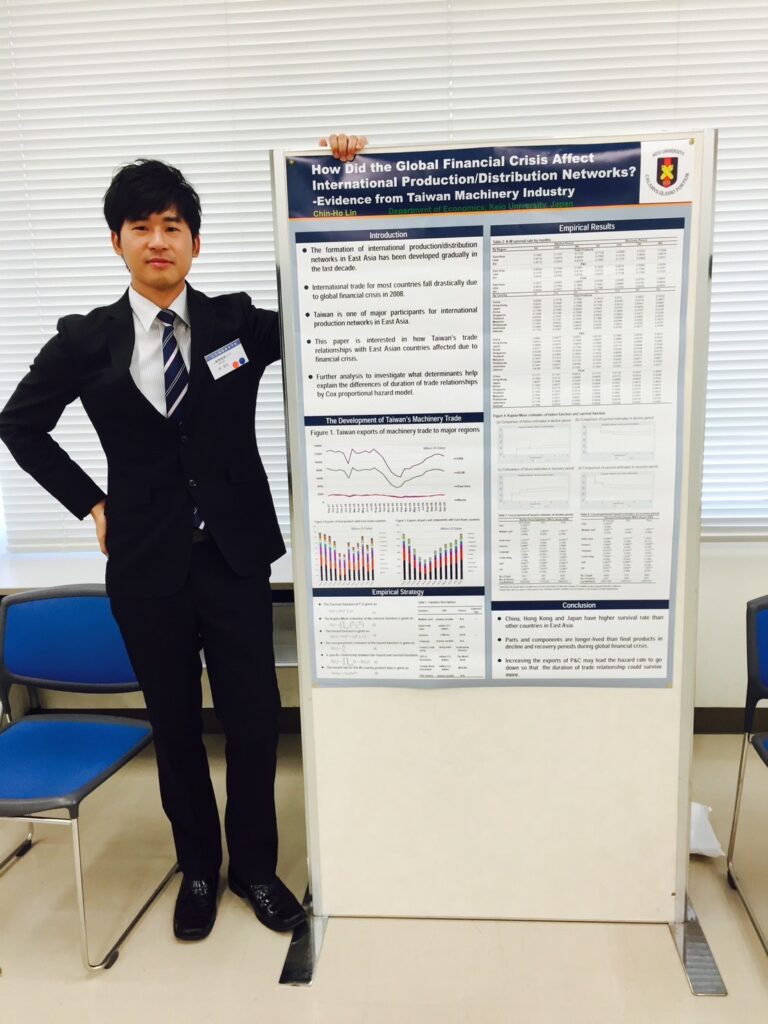 In terms of academics, studying for a doctorate also made Professor Chin-Ho Lin realize that many things have to be self-taught. You need to have the ability to research and learn on your own, and to think independently. For example, to do research on global value chains and supply chains, he needed to use statistical software to run data analysis. Chin-Ho Lin’s advisor, Professor Fukunari Kimura, suggested that he learn a certain software to keep up with the research technology and the mainstream. However, instead of teaching him, Professor Kimura said bluntly, “I don't know how to do that; that’s your business.”' 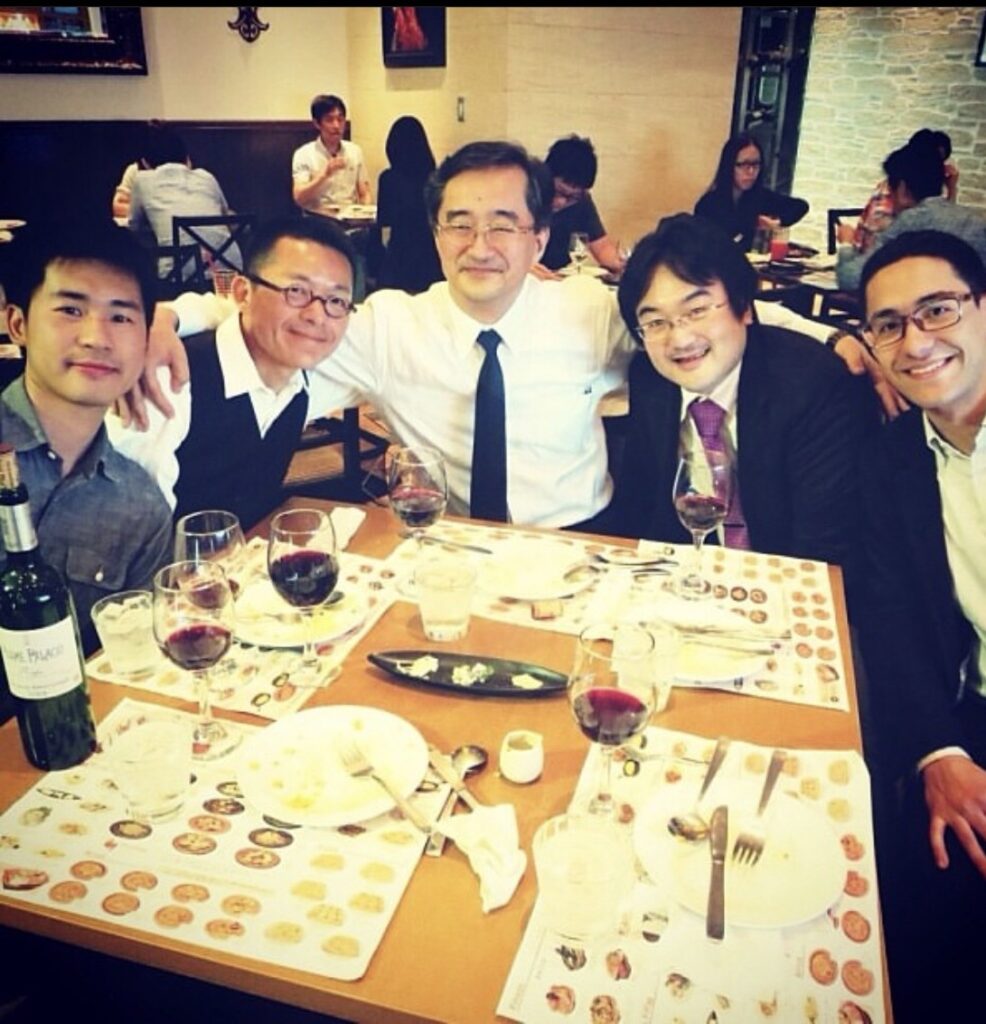 In the middle is Professor Fukunari Kimura, Lin’s advisor. What Professor Kimura meant is that the advisor mainly guides the logic and concepts of the dissertation direction, while the actual operation and the techniques used to achieve the research objectives are left to students to take the initiative to figure out themselves. Using input method of typing in Chinese as an analogy, both can type, and the teacher may only know Cangjie, but he will encourage students to learn Zhuyin to keep up with the times. How did Chin-Ho Lin get through this by himself? “Sometimes you get stuck!” This is the heartache of being a Ph.D. student. Sometimes he would go online to look up methods and forums, asking how to write code and how to run software, searching until the middle of the night. The path of research is lonely, especially in a foreign country. Professor Lin was able to get through this because of the support of his family. His girlfriend at the time, who later became his wife, also came to Japan to accompany him, learning Japanese and working at the same time. 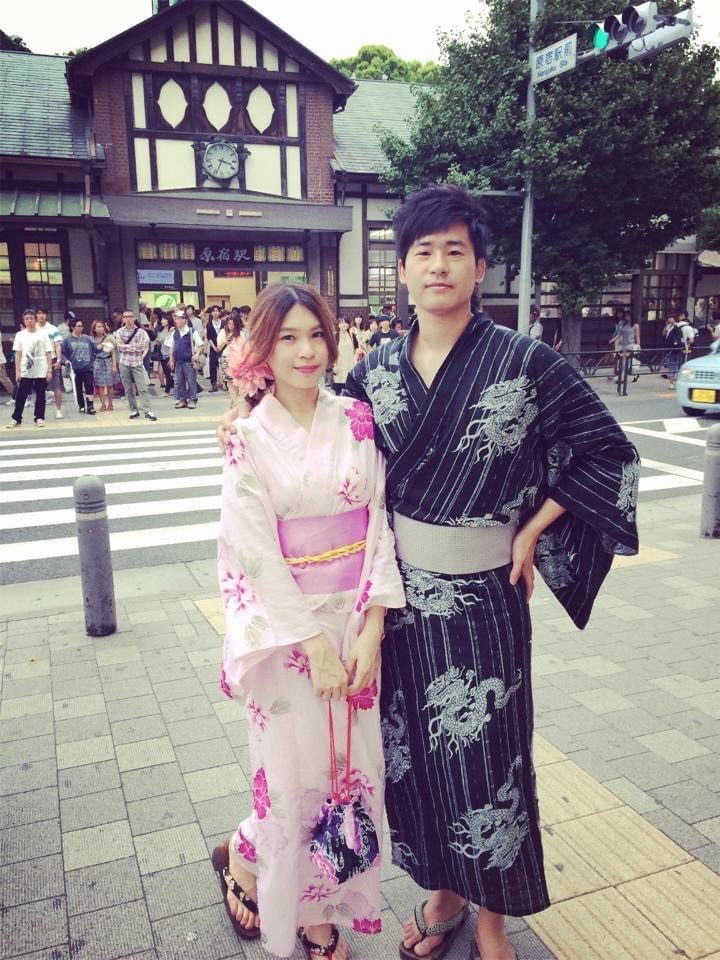 Not wanting to keep his wife waiting, Chin-Ho Lin wanted to graduate as soon as possible, and he was also under pressure to submit manuscripts for publication. It turns out that Ph.D. students must publish at least 3 or 4 articles in Japan before graduating; only then will they be recognized by the job market. Even though Professor Lin had already had one paper accepted by SSCI, Professor Kimura was very strict and still wanted to train him. After he published a second, third, and finally a fourth paper, Lin was finally recognized by Professor Kimura and was able to return to his home country to teach. 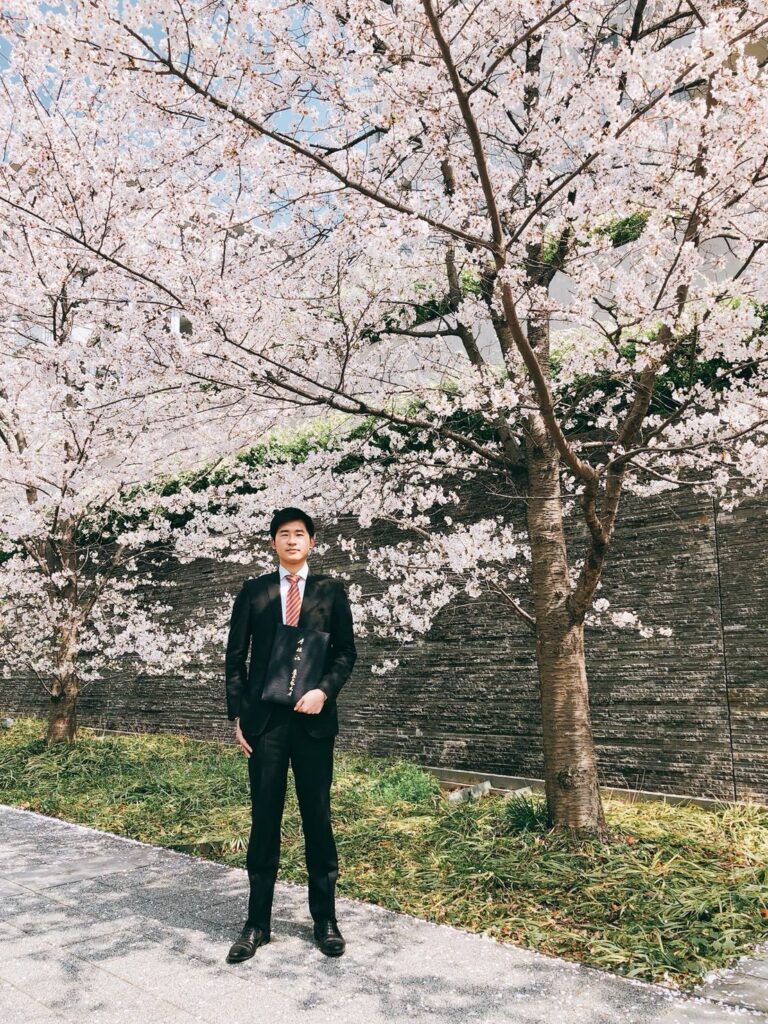 Learning economics through games helps students better integrate and apply their knowledge Feng Chia University’s Department of Economics was Professor Chin-Ho Lin’s first stop as he entered the teaching profession. As a new teacher, Professor Lin would often stay up late preparing for classes and studying academics like many other scholars, never tiring of doing so. 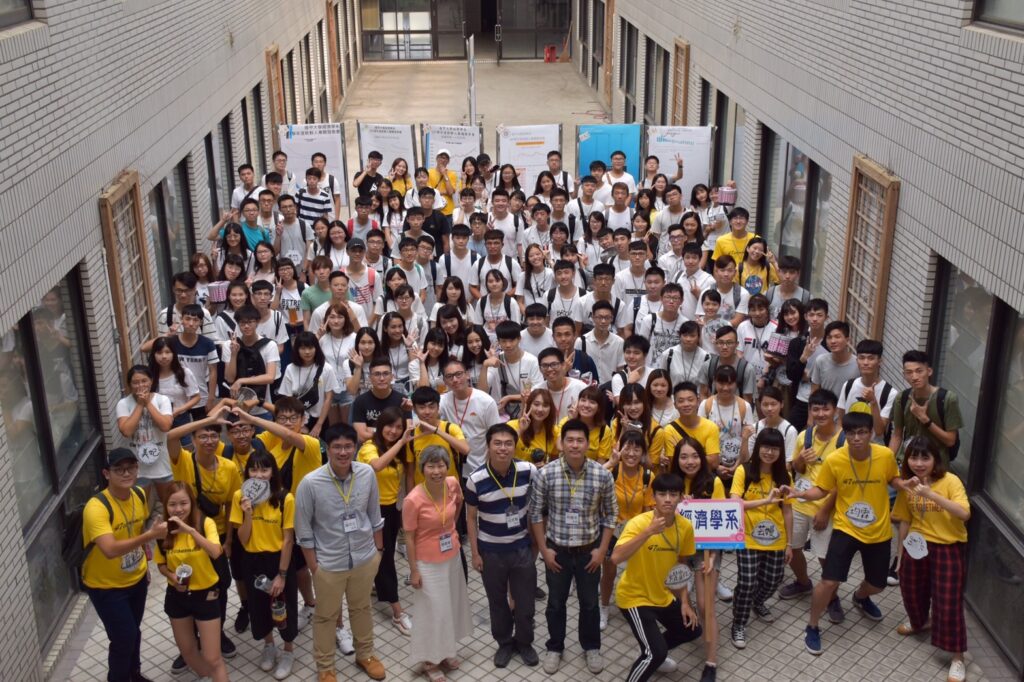 In order to make teaching more effective and easier for students to absorb, he made an effort to apply the pedagogy of “learning economic concepts through gameplay,” promoted by Associate Professor Pao-Chih Cheng of the Department of Economics at National Central University. When students learn economic concepts through gameplay, they have a more positive attitude toward what they have learned, and there are statistically significant advantages in short-term learning effectiveness as well as medium- and long-term memory. Professor Lin once had his students play an action game, which he also played in the NSYSU Business Management class this semester: the teacher wants to sell a 50NT coin. A student can bid 1NT to win the bid, which is equivalent to earning 49NT as he has to pay the cost of the bid. If he does not win the 1NT bid, he has to pay 1NT to the teacher and the auction continues. If a student bids 2NT and does not win the bid, he has to pay 2NT, and so on. If the bid reaches 49NT, would you continue to bid? Maybe some students will bid until 50NT so that the profit and loss are equal and it is not considered a loss. But then a very interesting phenomenon happens. Usually, students who bid 49NT will reluctantly continue to bet 51NT, even knowing that they will lose money. Professor Lin said, some students even bet until 200NT, unwilling to stop. “This is the ‘sunk cost’ theory,” Professor Chin-Ho Lin explains. Sunk costs are costs that have already been incurred and cannot be recovered in any way once they have been invested or paid for. The concept of sunk costs is like buying a movie ticket and then realizing that the movie isn’t any good: should you leave or waste time watching to the end? The price of the movie ticket is the sunk cost. “This way, the students will be able to immerse themselves in the situation and naturally have a strong impression of the theory of sunk costs.” He hopes that under his teaching, students will be able to understand and enjoy learning. Professor Chin-Ho Lin keeps up with the latest developments, such as financial technology, and he once held the positions of Director, Global Village of Business Education and Industry-Academic Extension Service and Director, Fundamental Course Center at Feng Chia University. At that time, Hsiang-Tsai Chiang, Dean of Feng Chia University’s College of Business, planned to set up a smart retail lab, and Professor Chin-Ho Lin visited many unmanned stores and tried to implement such new technology on the campus. “Unmanned stores” have no shopkeepers, the goods are supplied through AI, and payment is made through sensors or scanning codes. “In the future, unmanned stores will become a trend.” Although the College did not introduce it until later, it became part of Professor Lin’s experience. In terms of sustainability issues and the circular economy, Professor Lin also took a course on corporate sustainability management offered by the Taiwan Sustainable Energy Research Foundation, which is led by the former Minister of Foreign Affairs Eugene Chien, and even passed the sustainability manager certification. “I think it’s good to keep up with the trends.” He is able to teach classes on the SDGs, how to develop and regulate the green and low-carbon economy, how to calculate the carbon inventory, and how to write CSR reports, giving back to students what he has learned. Coming to NSYSU, Professor Chin-Ho Lin was pleased to notice that NSYSU students worked very, very hard. He used many “very”s in a row, marveling at the excellence of the NSYSU students. He also thanked the director of the Department of Business Administration and his fellow professors for their guidance. “It doesn't matter how you fall down; it’s how you get up that matters.” He has fallen and gotten back up before, and now he has never been so resilient. 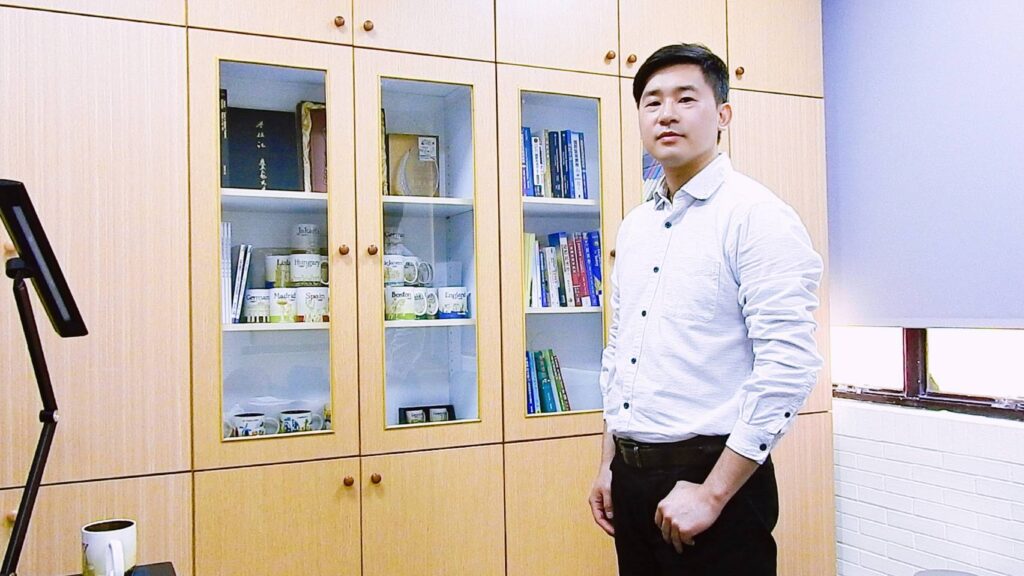 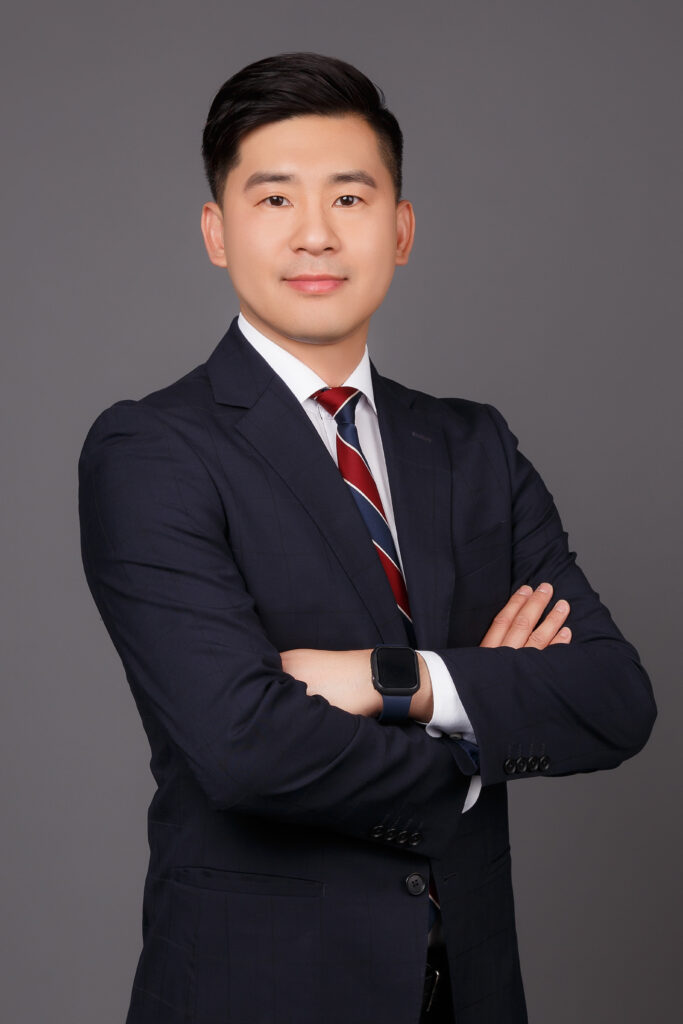 (Shen Yu, Media, College of Management / Interview Report) 【College of Management】 New Faculty Interview - Associate Professor Min-Nan Chen, Institute of Human Resource Management, NSYSU 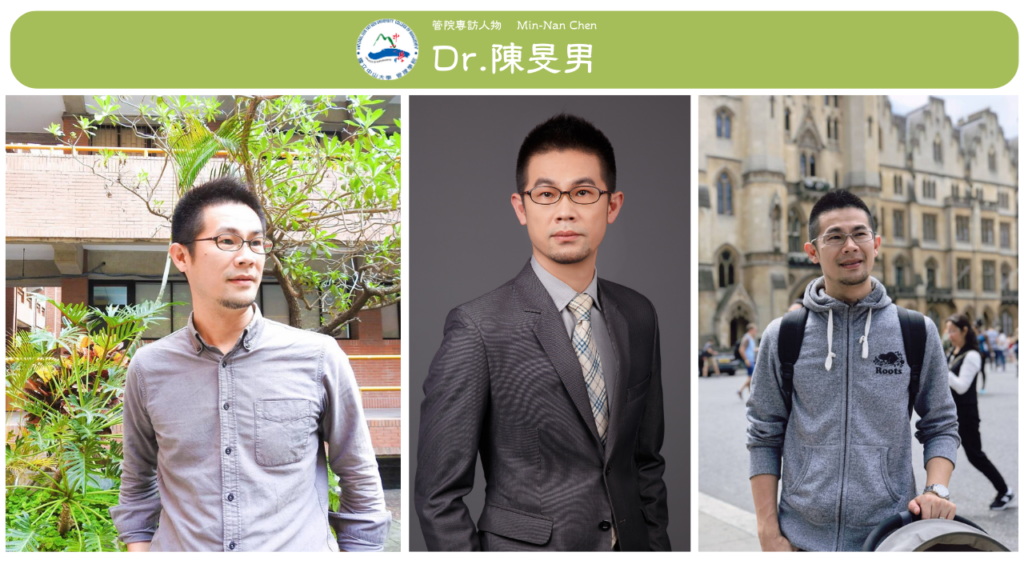 Somewhere ages and ages hence: “The Road Not Taken,” a famous poem by 20th-century American poet Robert Frost, depicts the hesitation of a traveler facing a fork in the road, and the conviction and determination of his final choice, which is timeless and endless. At the same time, this poem also portrays Professor Min-Nam Chen’s life and spiritual redemption. 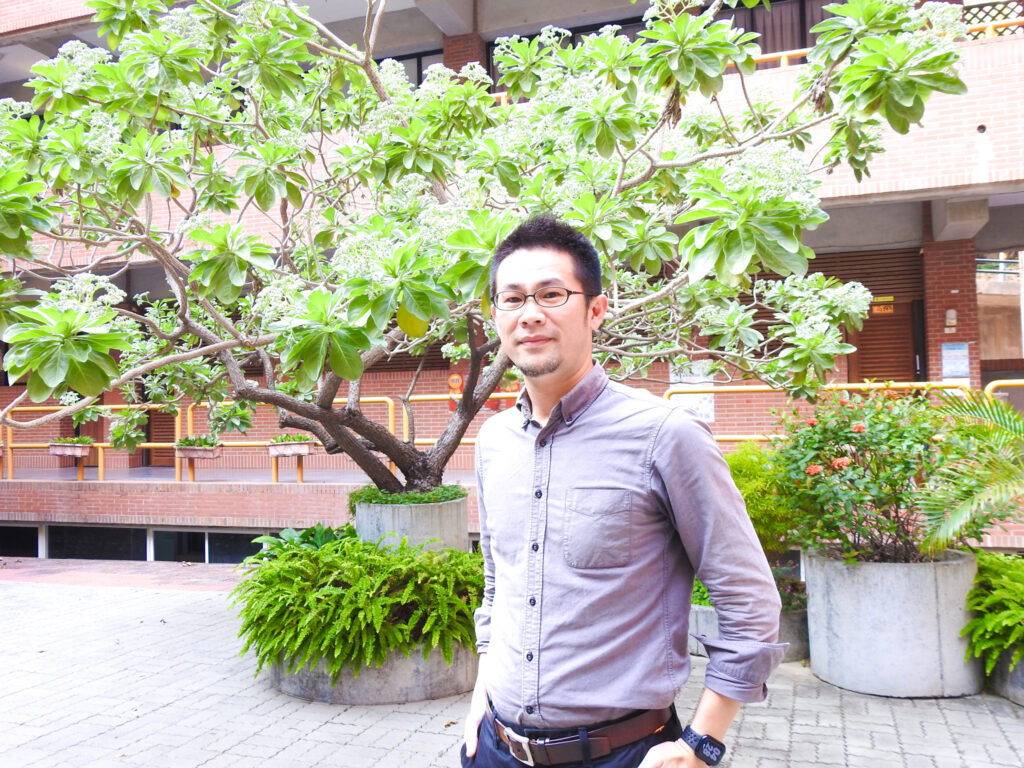 “The last two lines of this poem left a strong impression on me.” At first, the poem was required reading for every doctoral student in the Institute of Technology Management at National Tsing Hua University in Professor Shih-Chang Hung’s course Qualitative Research Methods. As a doctoral student at Tsing Hua, Professor Min-Nan Chen admits that at first, he had little understanding of the poem’s content, but it was not until “eight years after entering the academic field that I realized the richness of the poem’s meaning and the power of its interpretation,” he said with emotion. Professor Min-Nan Chen’s comment comes from the fact that he has continued to choose many roads less traveled by in his academic career, and he has experienced many obstacles. After many ups and downs and a series of choices, he has finally reached the dawn. 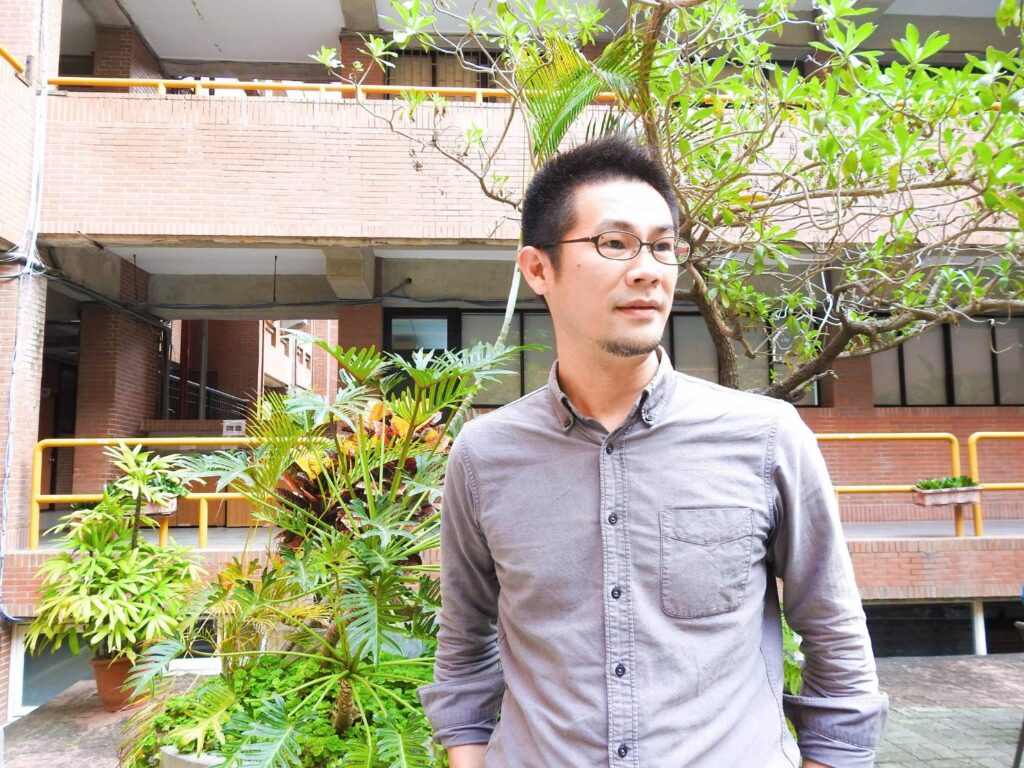 Professor Min-Nan Chen is now an Associate Professor at the Institute of Human Resource Management, NSYSU. Previously, he taught at National Chiayi University for eight years and was awarded the National Science and Technology Council’s 2022 Ta-You Wu Memorial Award. This semester, Professor Chen is teaching the course “Independent Studies in High Technology Human Resource Management” and, together with Professors Cheng-Hsien Li and Yu-Hsuan Wang, “Advanced Research Methods.” Professor Min-Nan Chen’s undergraduate degree is not in human resource management, but rather in the unrelated field of graphic communications. He received his bachelor’s and master’s degrees from the Department of Graphic Arts and Communications at National Taiwan Normal University. Due to family backgrounds, his peers either taught advertising design or went to work for a television station. However, after his internship, he chose to pursue a master’s degree, where he realized that he liked to do research, to think, and to investigate. Therefore, decided to pursue a doctoral degree. 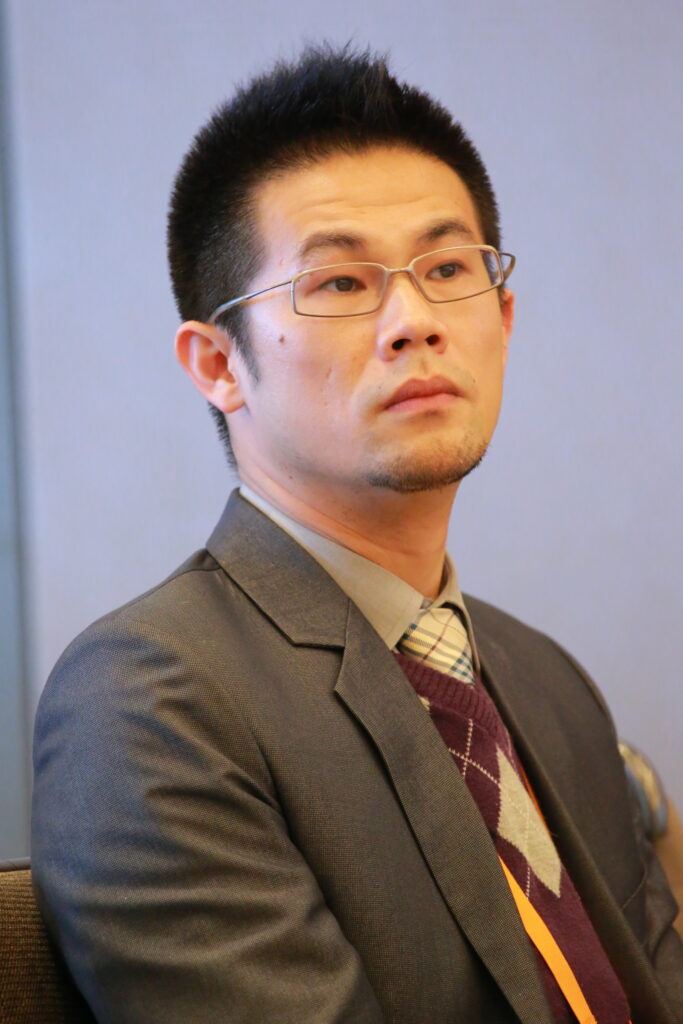 The first risky path: a not-yet popular master’s thesis topic His master’s thesis was on business incubation centers, which are now common in industry-academia collaboration. However, around 2005, they were rare in Taiwan. “I was a bit of a rebel at the time. I didn't want to do a traditional graphic communication topic.” Through his research, he worked closely with four design companies at an incubation center, investigating how these companies acquired entrepreneurial resources and managed to survive. Despite the limited data, he painstakingly managed to complete his master’s thesis. Later, although Professor Chen had decided to pursue a Ph.D. in Technology Management, he still had no clear direction. Fortunately, one of his professors introduced him to an alumni who shared with him the curriculum and development direction of Technology Management. “He gave me a career direction that had a significant impact on me, and I have somehow managed to come this far.” 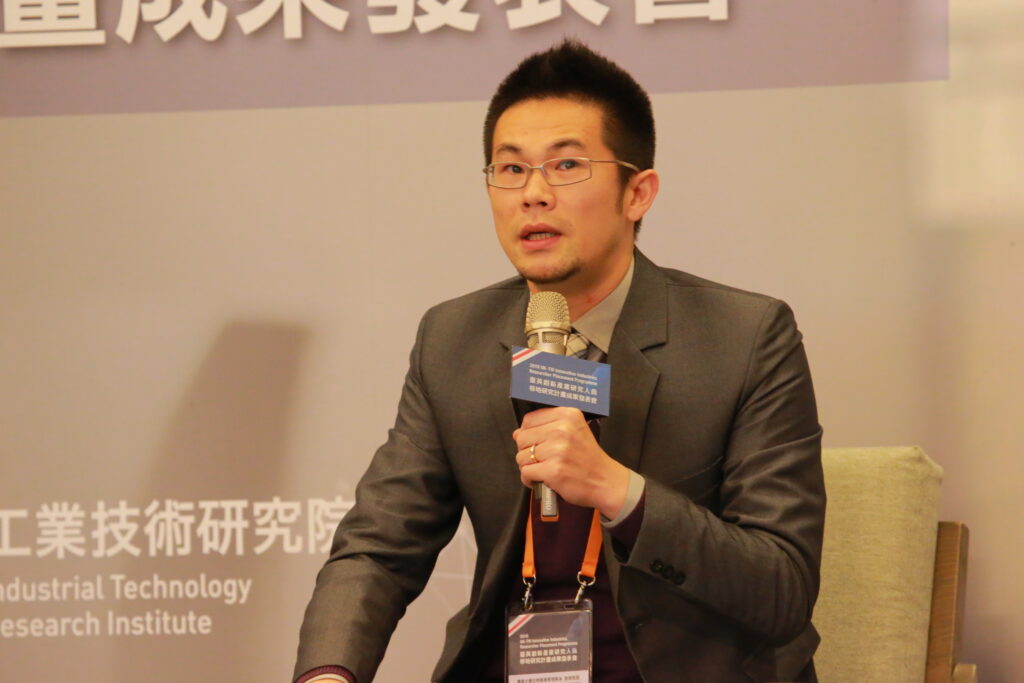 The second risky path: a Ph.D. dissertation that requires extensive data collection that is expensive and time-consuming In 2007, Min-Nan Chen embarked on his journey in the doctoral program at the Institute of Technology Management of National Tsing-Hua University, beginning a series of decisions, including deciding his advisor and his research direction. For his advisor, he chose to Professor Yuan-Chieh Chang, whose research area at the time mainly focused on science and technology policy and R&D management, with a strong emphasis on the practical applications and interpretations of research issues to policy. For his research topic, Min-Nan Chen again chose a topic with a limited literature and discussion: service innovation policy. “Professor Chang is from the University of Manchester in the UK. The industrial development in Manchester has gone from manufacturing to the service industry. So he said to me, ‘Why don’t you do something about Taiwan and look at how the government can help to promote it? You can provide it to the government as a guide.’ However, service innovation policy was not a mainstream issue in technology policy at the time,” said Professor Min-Nan Chen. How to survive in a wilderness with few academic resources? Together, the teacher and student made a huge contribution: they collected questionnaires from the top 1,000 companies in Taiwan’s service industry, from finance to engineering, from information to retail, and many others. How can a student with no contacts or resources reach out to these large companies listed on the stock exchange and ask their supervisors to fill out a student questionnaire that has little benefit to the company? “Through many, many relationships, through the help of professors, visiting many schools’ EMBA students… and the torment of waiting for replies or being ignored. I think these processes are actually the most difficult.” Looking back on the helplessness and sorrows at that time, Professor Min-Nan Chen said that the massive effort of collecting questionnaires, which cost a lot of money and took half a year, was fortunately rewarded with more than 300 returned questionnaires, with a return rate of 28.2%. This huge amount of data has also become the cornerstone of extended future research. 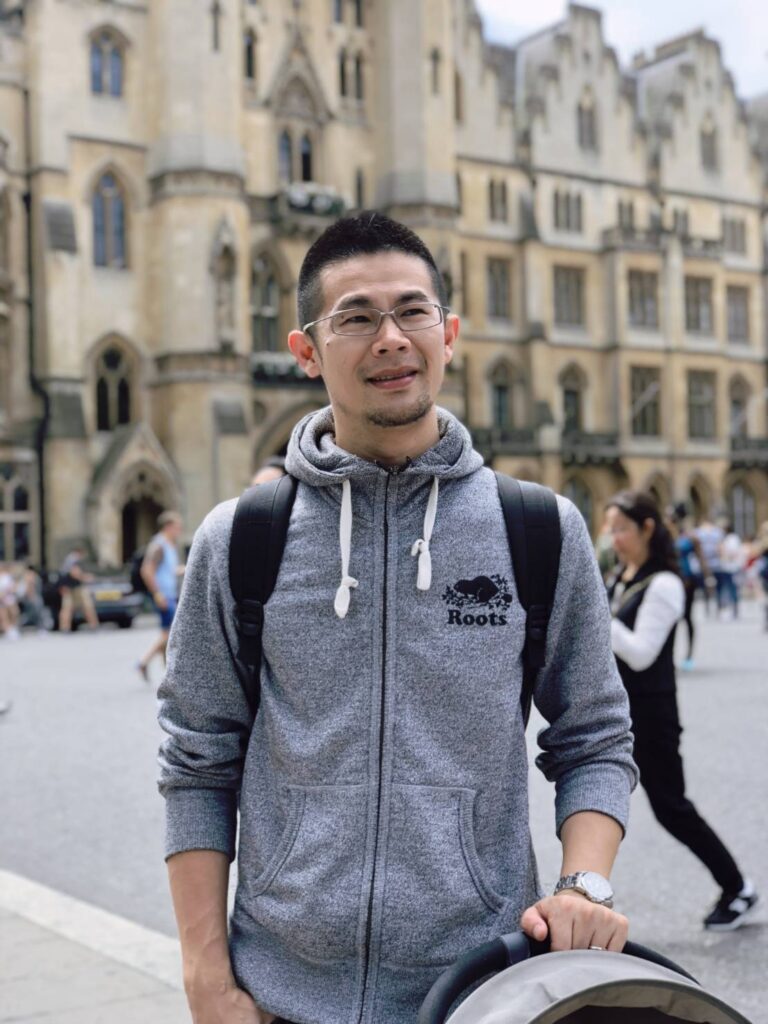 The third risky path: submitting to all kinds of journals and finally get an A-grade journal However, despite his painstaking efforts, the topic was not mainstream, so even though he submitted seminar papers and journal articles for publication everywhere, he usually received rejection letters within seconds. Professor Min-Nan sighed and added that some journals even reviewed his research for 2 years, and finally sent a rejection even after he had graduated. Although the path has been dangerous and full of obstacles, it was not without its benefits. These anonymous reviews gave feedback to the contributors with many suggestions, and Min-Nan Chen made major revisions based on these suggestions. However, with each journal submission rejection, Min-Nan Chen became more and more unsure of himself. Professor Chang suggested that he send his research to “Research Policy,” considered a first-rate journal by the Humanities Division of the National Science and Technology Council. He wanted to try everything, even if the chances of success were slim. Whether or not it worked out, at least he would have the experience of submitting a paper to a top journal in the field. After a full year of review, the paper was unexpectedly and successfully published in Research Policy in 2016, emphasizing that the innovation process of service industries has the same cluster characteristics as manufacturing industries, and providing important management and policy implications for service industries. Following this successful publication in 2016, further research results were also published in Research Policy in 2020. This paper further explored the characteristics of innovation in Taiwan’s service industry and proposes complementary-in use appropriability strategies that can effectively overcome the loose appropriability conditions of the service industry and provide solutions for the scaling up and internationalization of the service industry. In retrospect, in terms of the choice between quality and quantity of research publications, Professor Min-Nan Chen has adjusted his journal submission strategy to target A-grade journals of the National Science and Technology Council with “quality” as the primary consideration. However, this strategy carries a high risk of failure, and submissions and revisions often feel isolating. Submitting to A-list journals can be frustrating most of the time; however, he still expects himself to be optimistic about the criticism and positive about the suggestions. In addition, he is grateful to Professor Yuan-Chieh Chang for his training and assistance. “It is difficult to express in words my gratitude and respect for his meticulous spirit of research, which has guided me every step of the way and influenced my attitude towards research and scholarship.” 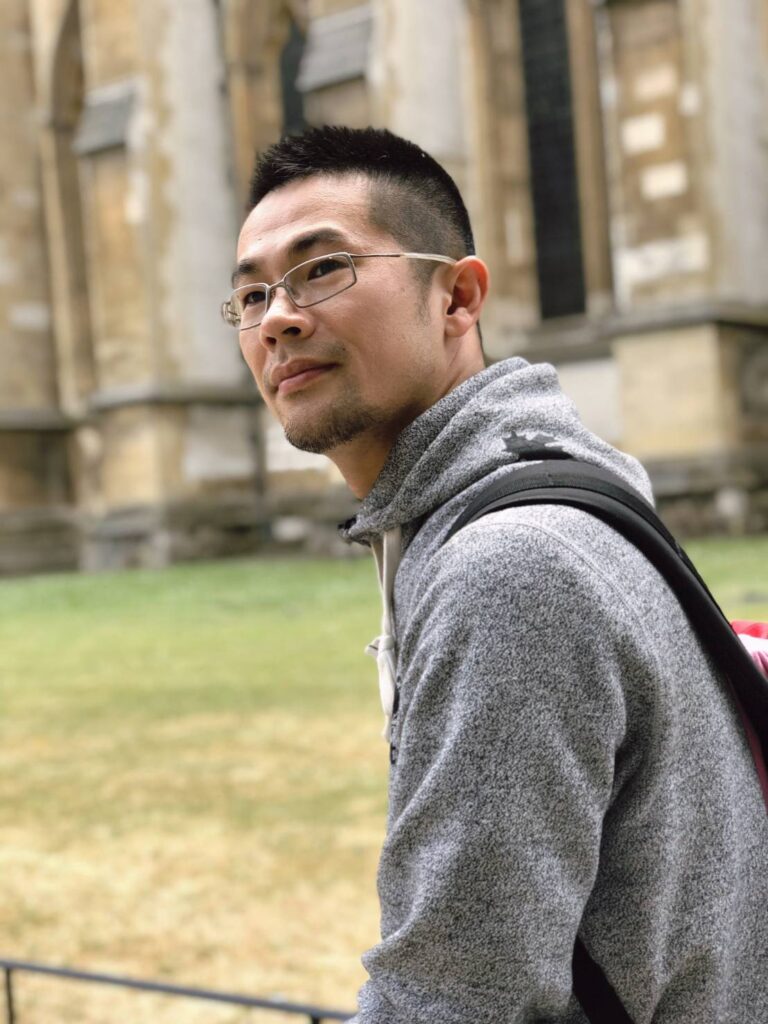 Chiayi - Taipei, Kaohsiung - Taipei In 2014, Professor Min-Nan Chen joined the Department of Biological Business Management (now renamed the Department of Technology Management) at National Chiayi University as a project assistant professor. Unbelievably, Professor Chen travels halfway around Taiwan almost every day to return home! Whether at National Chiayi University or later at National Sun Yat-Sen University, Professor Chen’s home is in far-away Taipei. At the beginning of his teaching career, he was under the pressure of his project contract evaluation. He was often commuting between Taipei and Chiayi on the same day, and it was common to include all of Western Taiwan in his daily living area. In addition, in his second semester of teaching, Professor Chen’s wife returned to the workplace after her maternity leave was over. He also had to balance his responsibilities as a father, dropping off the children at school and picking them up. It was part of his daily routine to take the HSR to pick up his children, and an 8:00 a.m. to 6:00 p.m. class schedule on Monday to Friday was also the norm. At that time, his teaching load was heavy and his research work stagnated. It was quite difficult for him to adapt mentally. Fortunately, after being guided and advised by Professor Chih-Ping Wei of the Department of Information Management at National Taiwan University, he realized the importance of time management and concentrated on his research. After adapting to his teaching load and making better use of his time, his research gradually got back on track. He does not waste his commute time on the HSR, sharing how to manage his time: “Every time I get on the HSR, I think about what I want to do in the next 1.5 hours,” he said. “With a goal in mind, I can arrange each time slot in a detailed manner. For example, I need to review an essay, finish a piece of writing, catch up on sleep, etc.” After completing these goals, he can get off the HSR and go back to picking up his kids and enjoying family time.  Guiding students’ lives, learning and teaching each other In addition to research, teaching is also a professorial responsibility at the university. “I am very interactive with students, and in the process of interaction, you can also learn something.” Professor Chen believes that teaching and learning go hand in hand. “I am happy to talk with students about their studies, careers, and even their love lives. I try to find ways to guide them, just like friends talking.” Professor Min-Nan Chen said he once had a student who wanted to apply for the firefighter exam because her family had big problems and was not financially well-off, but because she couldn’t afford to take extra classes to prepare for the exam, she came to him for help with her career direction. Professor Chen not only helped her raise money for her tuition, but also lent her his research room to study at no cost. In the end, the student studied hard for seven months and successfully passed the firefighter exam, got a stable job, and got married happily. This student was very grateful to Professor Min-Nan Chen, and she told him, “Teacher, you are my hero.” “I was on the verge of tears when I heard that,” said Professor Min-Nan Chen, who was glad he was able to help the student. “It was also because this student was very earnest. If we all did nothing, she might have gone astray.” 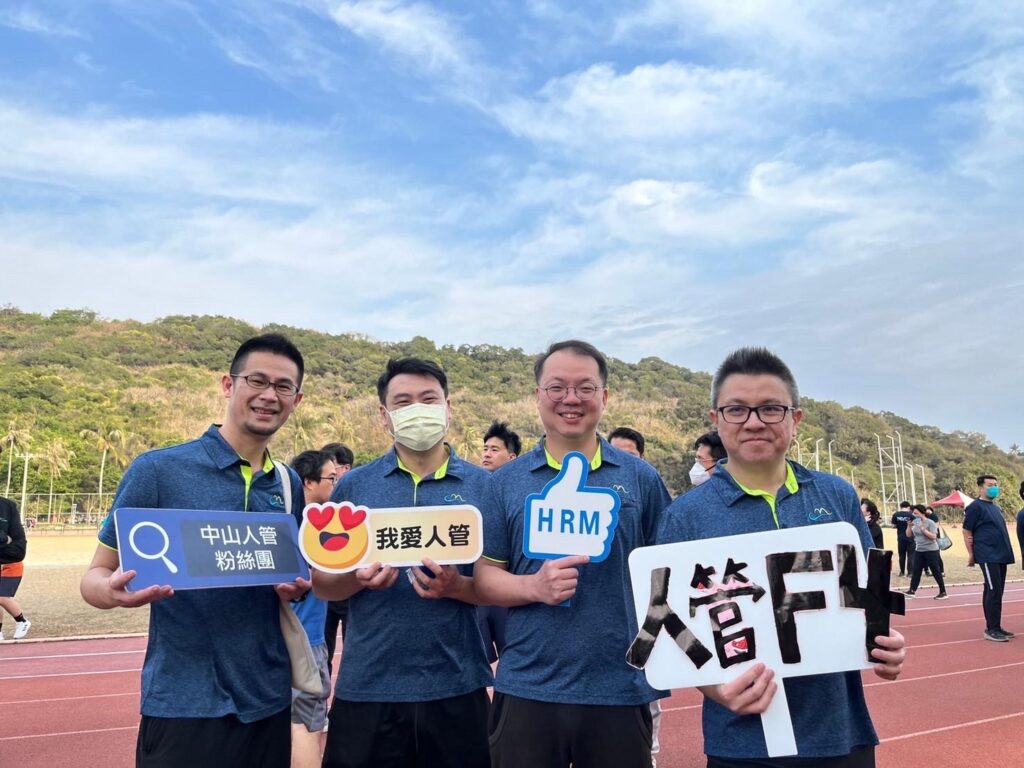 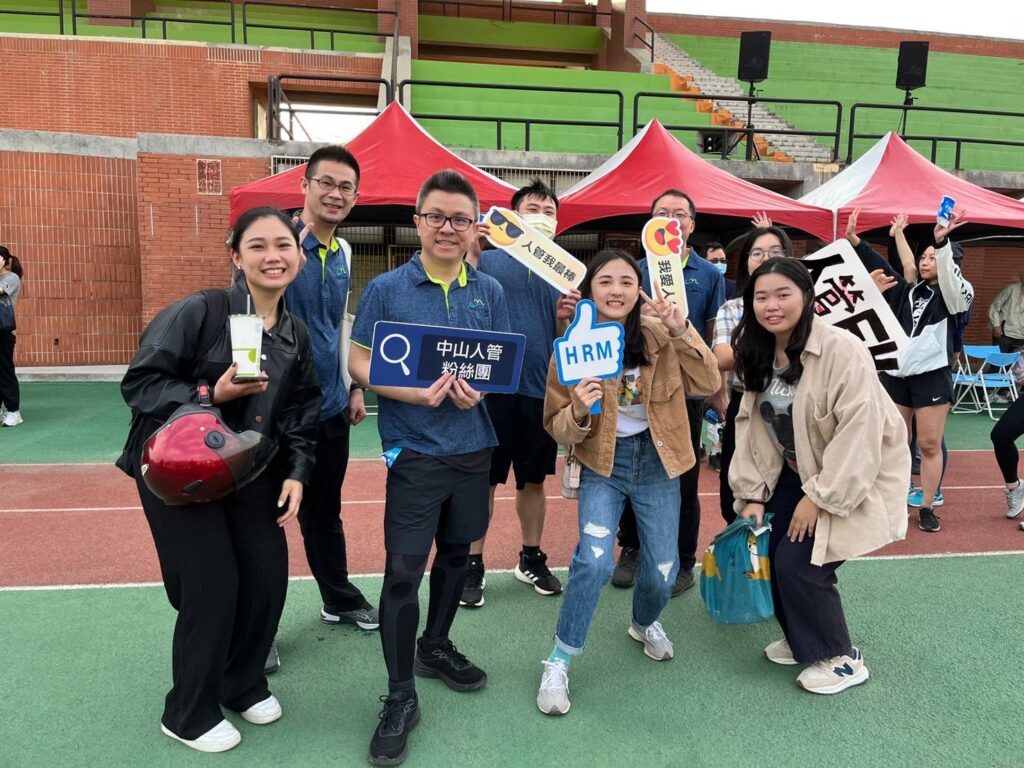 Coming to NSYSU Institute of Human Resource Management, he got lots of benefits When he came to NSYSU’s College of Management, Professor Min-Nan Chen’s research and teaching, as well as his life, became more and more practical. “NSYSU is a very, very beautiful campus.” Professor Chen smiled, adding that one of the reasons was that his wife, an alumnus of NSYSU, highly recommended him to come to NSYSU. Moving from National Chiayi University to National Sun Yat-sen University, and from technology management to human resources management, was another brand-new challenge. “NSYSU’s Institute of Human Resource Management is a place where I could go back to zero,” Professor Min-Nan Chen said modestly. The benefits he has received from NSYSU’s Institute of Human Resource Management’s director, Nai-Wen Chi, and other faculty members have been great. For example, he recently listened to Director Nai-Wen Chi’s lecture “New tricks for old dogs: How to find new gaps in a mature research field” and was “extremely shocked” by the three strategies for turning old ideas into new ones provided in the lecture. 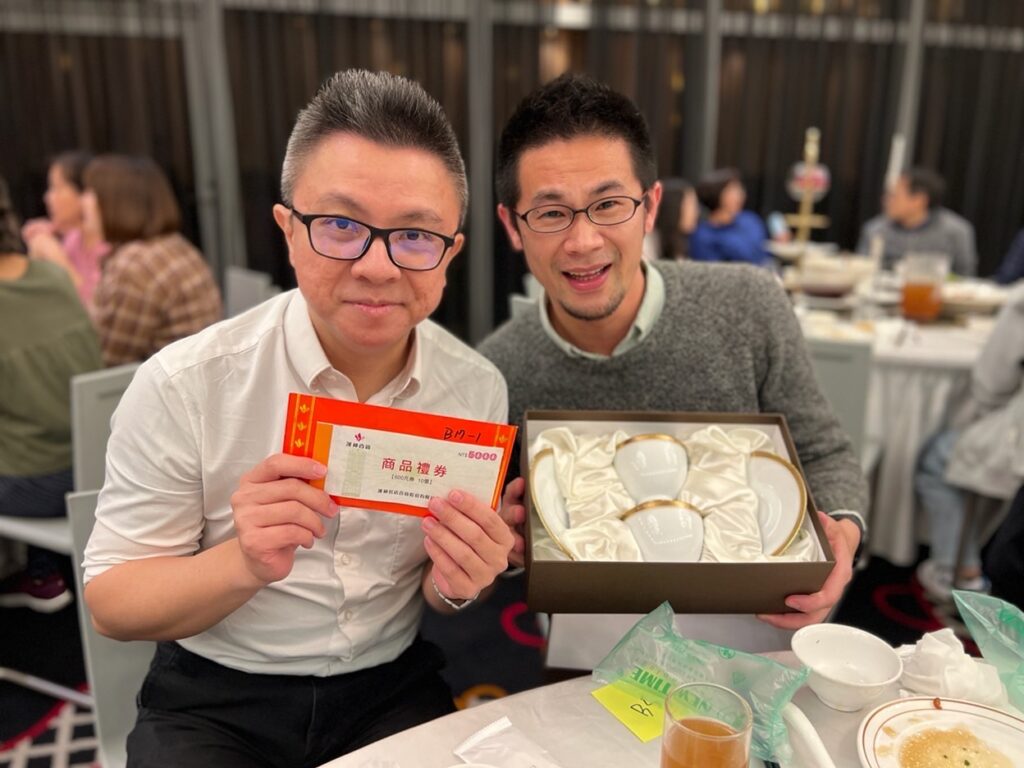 He is also very grateful to the helpful administrators at National Sun Yat-sen University. “All of my fellow faculty members are too good! Although this was a big shock for me, I think the shock was very beneficial to me.” Looking back on the eight years of his academic journey, it is like the last two lines of the poet Robert Frost’s unchosen path: “I took the one less traveled by, and that has made all the difference.” Professor Chen says, “I took the road less traveled by, and I don’t know if this road will eventually lead me to victory.” But he believes in being down-to-earth, faithful to his choices, and worthy of heaven and earth. 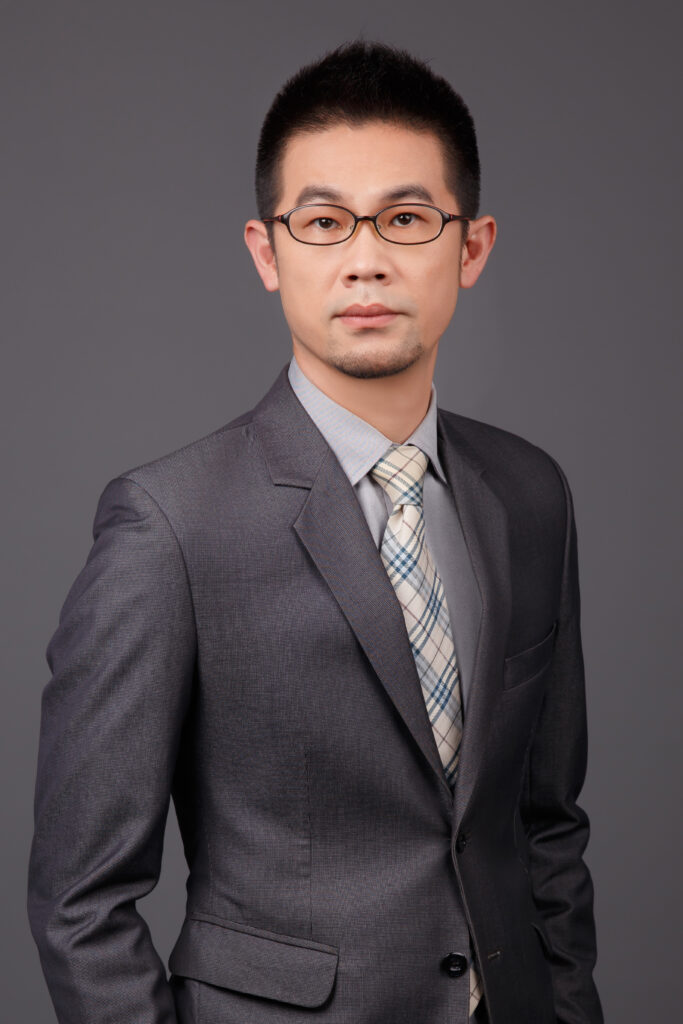 (Shen Yu, Media, College of Management / Interview Report) 【IBBA】Campus Visit to NSYSU - Hua Hin School English Program, Thailand  As part of IBBA's ongoing effort to promote and attract high-caliber international students to the IBBA program, on the 30th of March 2023, the IBBA program organized a campus visit for a group of students from Hua Hin School English Program, Thailand. The visit took place at National Sun Yat-sen University(NSYSU) in Taiwan and aimed to showcase the program's advantages for foreign students while creating a bridge between the two schools. Having shared some similarities with Hua Hin, which is well known for its beaches, the students quickly assimilated themselves into NSYSU's environment. Starting off the campus visit, Prof. Chien-Yuan Sher, Program Director of the IBMBA & GHRM MBA program, and Ms. Angie Tu, IBBA Program Coordinator, extended their warmest welcome to the students from Hua Hin. After a brief exchange, Andy Teo, a year 2 GHRM MBA student, took over and shared with the students what NSYSU has to offer for international students, scholarship opportunities, the IBBA curriculum and application details, and student activities. The IBBA program at NSYSU is specifically designed for international students, offering a comprehensive curriculum taught entirely in English by professors from various countries. The first two years focus on building a strong foundation in business studies, supplemented by cross-cultural communication and English proficiency training. From the third year, students can choose a specialization track, such as Finance, International Business Management, or Information Management.  In addition to the robust academic program, IBBA students can expect various opportunities for personal and professional growth. These include overseas exchange programs or dual degree options with partnering schools like the Peter B. Gustavson School of Business at the University of Victoria (UViC) in Canada and the University of Essex in the UK. The program also offers career-related events, resume screening, and career consultancy services, which provide valuable insights and connections to industry experts. To have a better understanding of the curriculum, the students also sat in the Human Resource Management (HRM) class conducted by Prof. François. As one of the core components to build up the students' foundation in International Business Management, the HRM class offered students valuable insights into the importance of HR and the role they play to support the organization's objectives. It wouldn't be called a campus visit without a tour around the school. The campus tour highlighted NSYSU's unique setting between the beach and the mountain, which offers students a unique view and unparalleled study environment. From the library to the sports stadium to the Sizihwan beach, the students thoroughly enjoyed themselves during the tour, further solidifying the university's reputation as an attractive destination for international students. The collaboration between NSYSU and Hua Hin School English Program demonstrates a commitment to fostering global connections and providing exceptional educational opportunities for students from around the world. The enrollment period for the fall semester usually falls between mid-January to mid-March every year. For more information about IBBA program admission, please visit https://reurl.cc/o04Dzg and https://reurl.cc/EGLKKa . 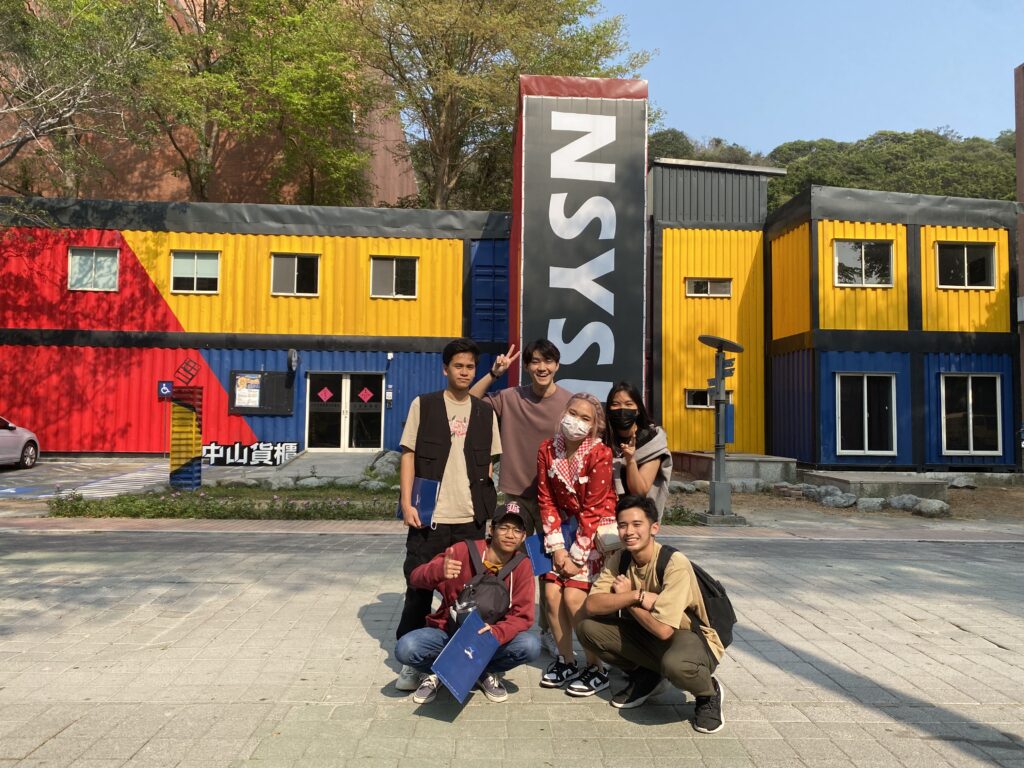 【IBMBA】Guest Lecture- Digital Transformation: Luxury or Necessity? 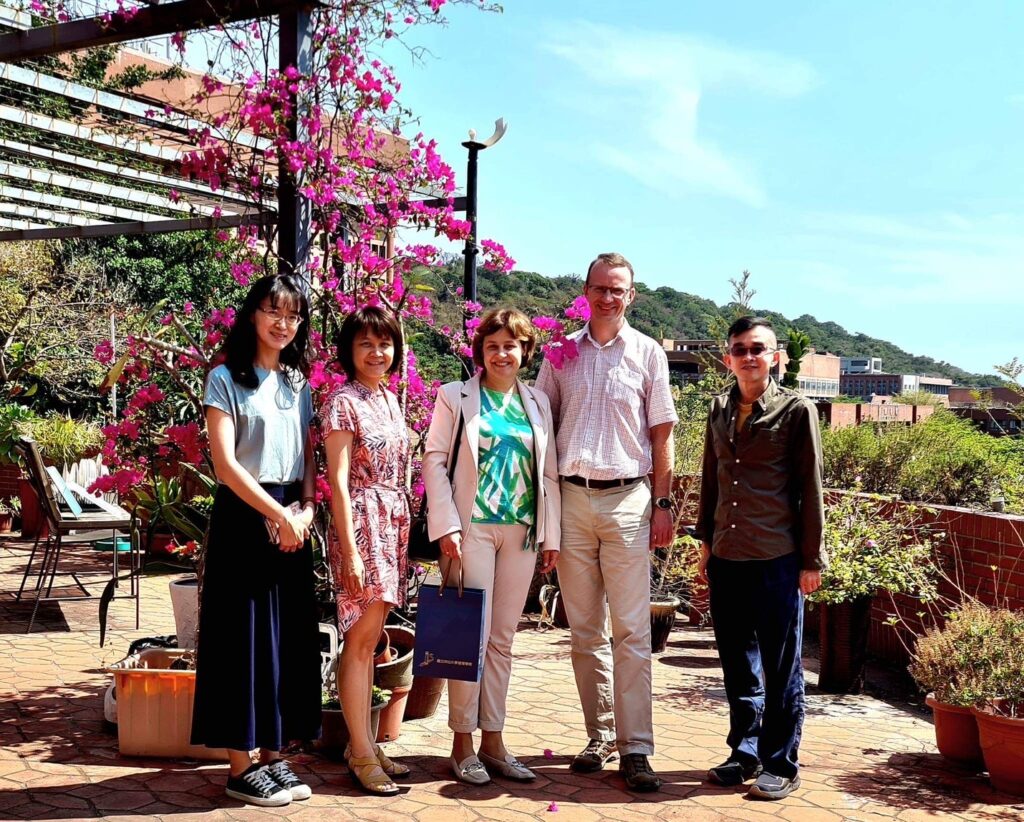 National Sun Yat-sen University (NSYSU) is the only university entrusted by the Ministry of Foreign Affairs to collaborate with Lithuania's leading universities in the Taiwan-Lithuania Semiconductor Talent and Research Scholarship Program (STAR Program). NSYSU has established Memorandums of Understanding and a Joint Statement with three top-ranking Lithuanian institutions: Vilnius University (VU), Vilnius Gediminas Technical University (VILNIUS TECH), and Kaunas University of Technology (KTU). Shyh-Jer Chen(陳世哲), a Distinguished Professor at the Institute of Human Resource Management at NSYSU's College of Management, invited Dr. Lina Užienė from KTU to deliver a series of guest lectures for the university's international programs. On March 21, 2023, Dr. Lina Užienė from Kaunas University of Technology (KTU) conducted a guest lecture for Dr. Wen-Shin Chen’s course of Management Information System. She provided valuable insights on the topic: Digital Transformation: Luxury or Necessity? Dr. Užienė further illustrated her experiences at the 2020 World Expo in Dubai and showed how digital transformation has evolved recently. She specifically emphasized: “Everyone is afraid that robots will come, while there are some business aspects that cannot be replaced, such as logistics, human resources, and accounting. Thus, don’t be afraid because human intervention is still very important.” She also discussed the digital economy and society indices in the EU, including human capital, connectivity, integration of digital technologies and digital public services, as well as other indices such as IMD world digital competitiveness and the European Index of digital entrepreneurship systems. “Although technology moves itself, it takes time to put technology in business,” she concluded. 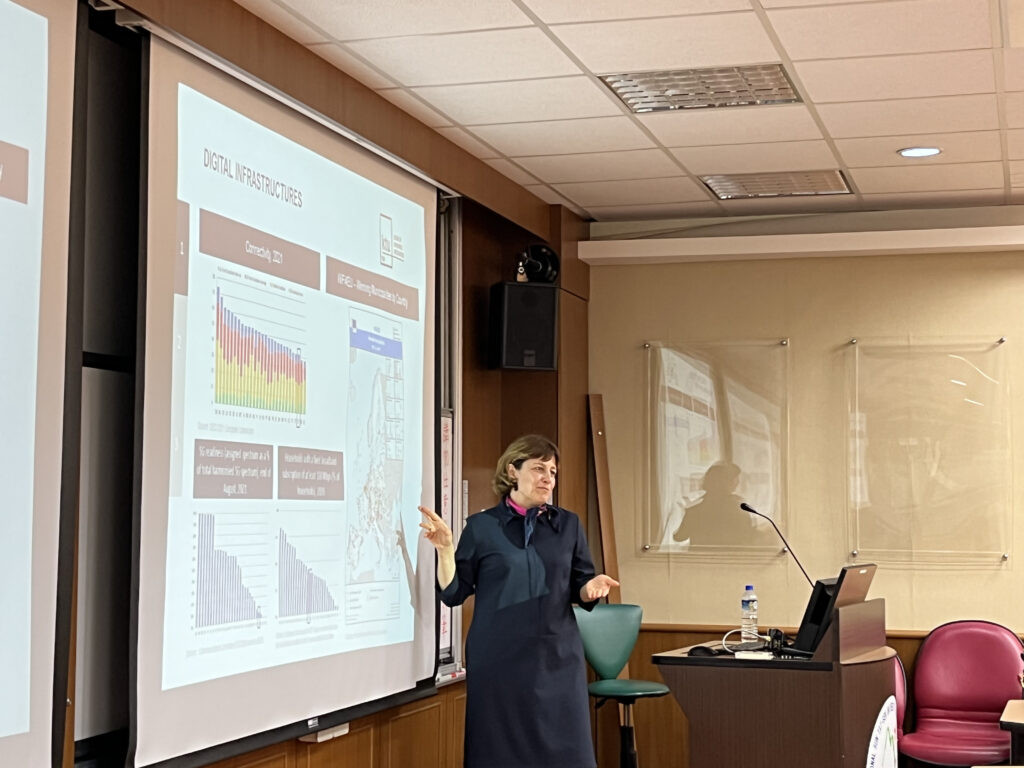 In the second session, Dr. Užienė introduced digital transformation in an organizational context that is mainly derived from her research project about “Digital Transformation Assessment.” She discussed in details about the seven dimensions of their research, which are corporate strategy, leadership and organizational culture, organization and process, technologies, supply chain and networks, products and services, and employees and competencies. Their research suggests that during the digital transformation process, managers need to encourage employees to try new things as well as to accept the situation that they might fail and that they need to learn from their mistakes. Dr. Užienė further discussed various examples of digital transformation in Lithuania and in her city, Kaunas, particularly since the pandemic. While the significance of digitalization was highly emphasized, she also cautioned us about various issues resulting from digital transformation such as war crime, cyber security, propaganda, income inequality, autocracies, and platform monopolies. To conclude the lecture, Dr. Užienė highlighted the significance of sustainable digitalization that should use the UN’s SDGs as the basis of transformative policies to help create human-centered digital transformation. During the final Q&A session, several students eagerly asked critical questions about political and societal issues of digitalization experiences in Lithuania. Their enthusiasm and criticality intrigued our guest speaker and helped bring Dr. Užienė’s informative lecture to an end. 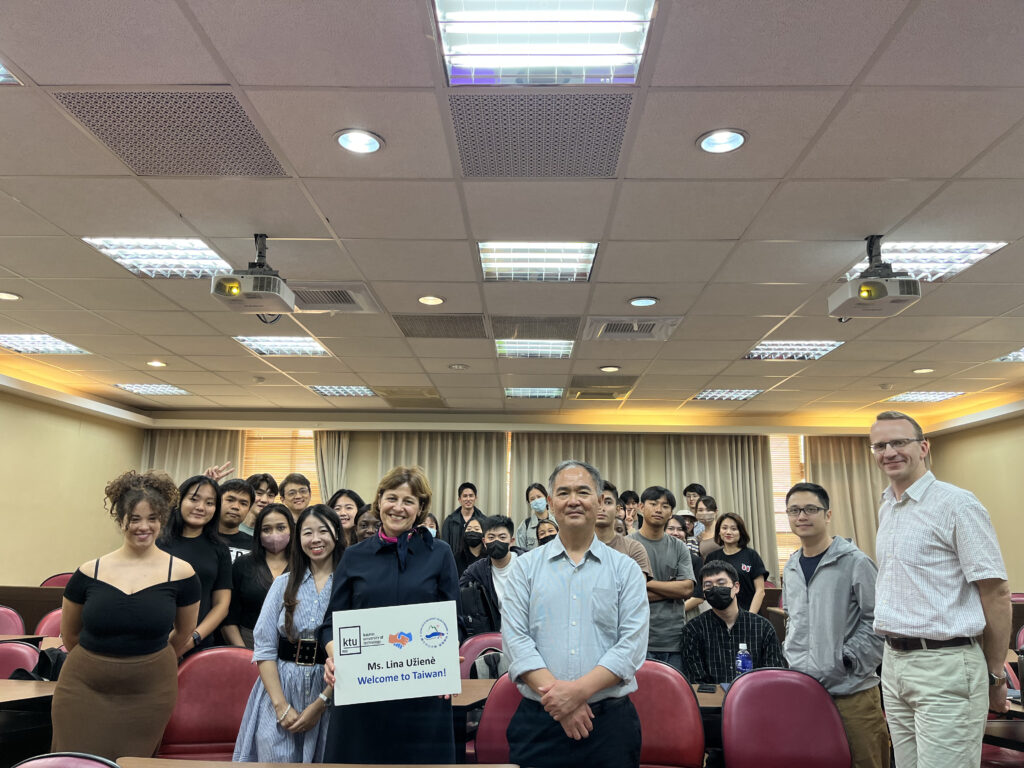 (Written by Maggie Wu/ Edited by Sam Chen) 【IBMBA】Guest Lecture- Intellectual Capital Management 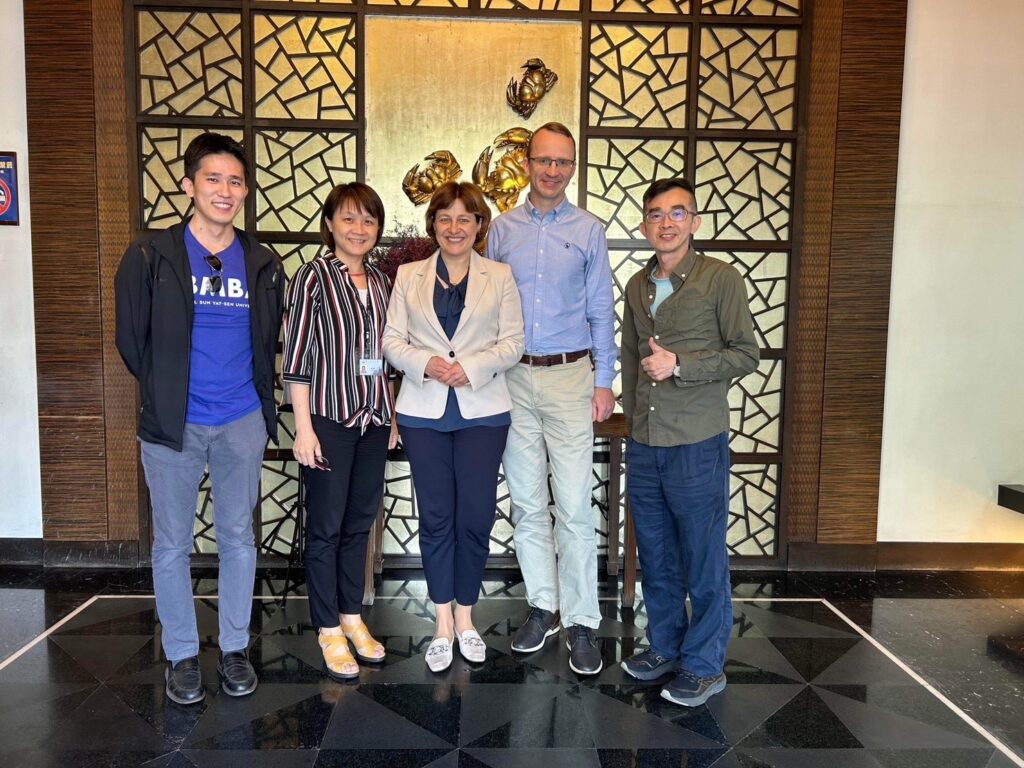 National Sun Yat-sen University (NSYSU) is the only university entrusted by the Ministry of Foreign Affairs to collaborate with Lithuania's leading universities in the Taiwan-Lithuania Semiconductor Talent and Research Scholarship Program (STAR Program). NSYSU has established Memorandums of Understanding and a Joint Statement with three top-ranking Lithuanian institutions: Vilnius University (VU), Vilnius Gediminas Technical University (VILNIUS TECH), and Kaunas University of Technology (KTU). Shyh-Jer Chen(陳世哲), a Distinguished Professor at the Institute of Human Resource Management at NSYSU's College of Management, invited Dr. Lina Užienė from KTU to deliver a series of guest lectures for the university's international programs. On March 23, 2023, Dr. Lina Užienė led a guest lecture during Dr. Yu-Chen Yang's Global Supply Chain Management course. Dr. Lina's insightful lecture on intellectual capital sparked thought-provoking conversations among the IBMBA students. She began by discussing KTU's achievements and Lithuania's advancements in areas such as sustainability, technical education, blockchain, fintech, and payment industries. Dr. Lina emphasized the importance of intellectual capital in driving a company's competitive advantage and long-term success, citing examples from top global brands. 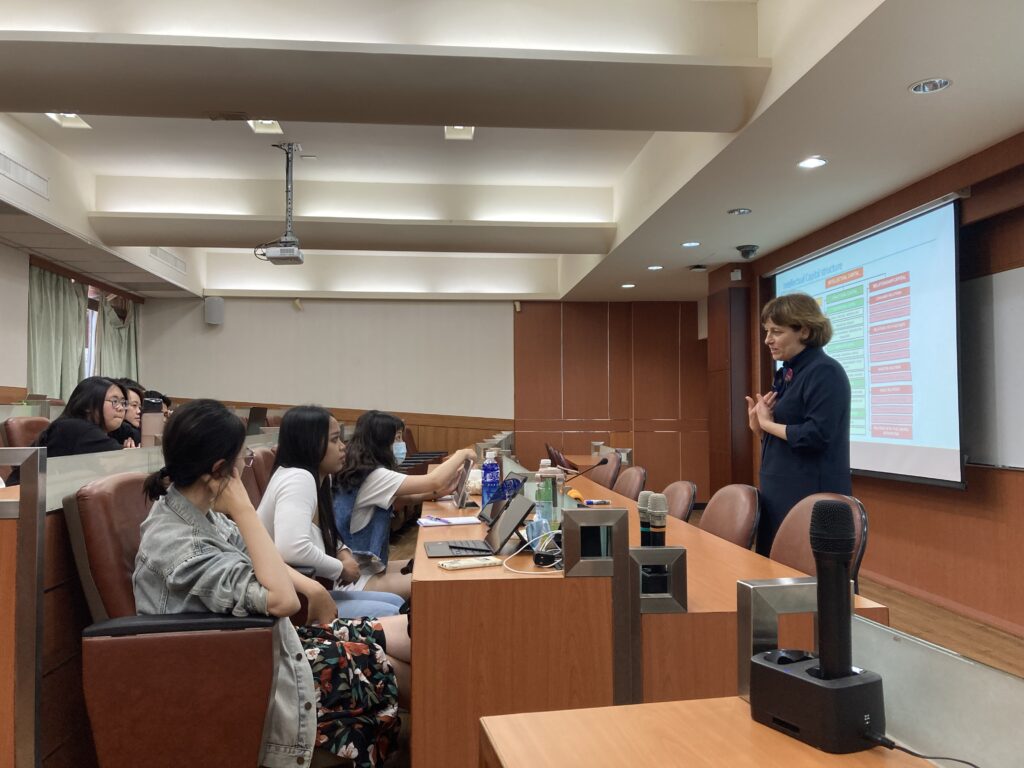 Dr. Lina encouraged students to explore questions related to intellectual capital in various industries (health and technology), company sizes (start-ups and large corporations), and organizational types (profit vs. non-profit). She then guided students through a collaborative brainstorming session focused on the three key components of intellectual capital: human capital, structural capital, and relationship capital. Students analyzed these factors for Apple, Google, and Kantar. Following internal discussions, each team presented the unique strengths that contribute to the success of each company. Apple's success was attributed to its skilled workforce, including creative and innovative designers who develop high-quality products and services, a comprehensive ecosystem that creates a unique and seamless user experience, and strong customer relationships. Google's success was linked to its programming expertise, diversified business model, and solid relationships with other tech companies and users. Moreover, Google's innovative culture and the provision of top-notch facilities to attract the brightest minds in the market also contribute to its accomplishments. Kantar's success was credited to its specialized staff, consisting of analysts, data scientists, and consultants with domain knowledge and consumer insights expertise, distinctive databases from various sources, providing valuable insights and actionable recommendations to its FMCG clients, and strong partnerships in the research and consultancy sectors. For the final activity, students analyzed Taiwan's intellectual capital by examining the nation's human, structural, and relationship capital strengths. Dr. Lina wrapped up the lecture by emphasizing the significance of attracting and nurturing intellectual capital for a country's sustainable growth, as demonstrated by countries like Germany, Dubai, and Singapore. The session provided students with a thorough understanding of intellectual capital and its significance in driving success for both companies and countries. Dr. Lina's engaging teaching approach allowed students to apply these concepts to real-life scenarios while instilling a sense of pride in Taiwan's accomplishments, particularly in the semiconductor industry. 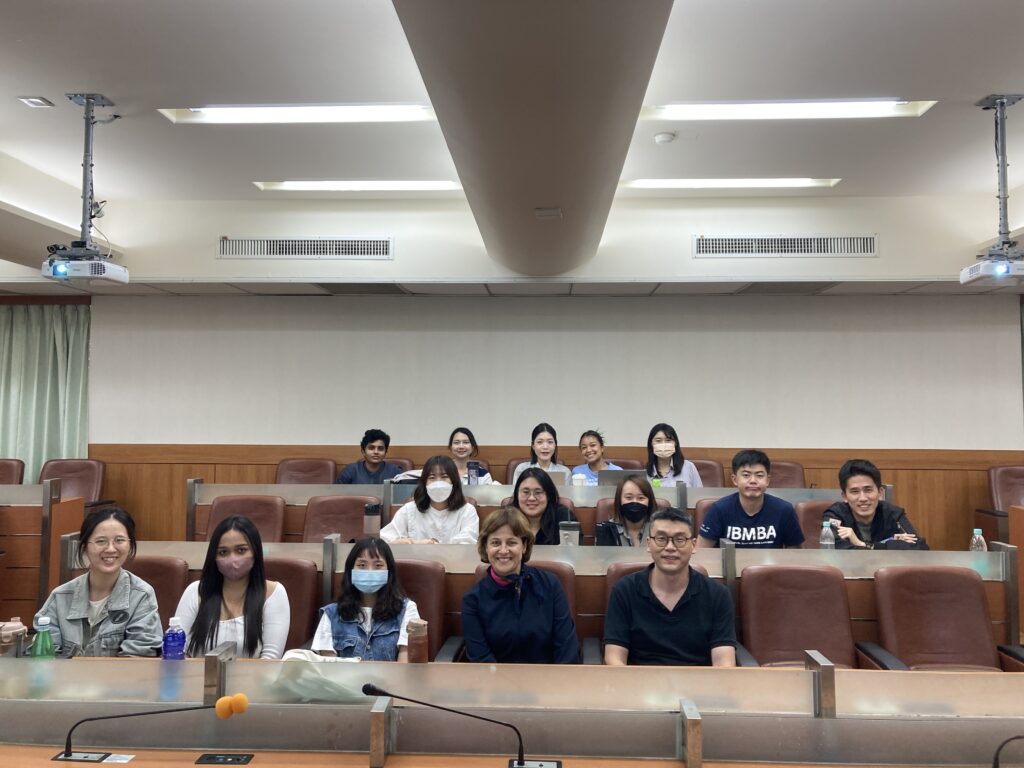 (Written by Vipin Saini/ Edited by Sam Chen) 【College USR】Merit and Prospects for Sustainability “Sustainable development” is a hot topic of global concern today. It is a business model based on a long-term perspective that aims to balance economic development, social responsibility and the environment to ensure the long-term sustainability of a company in the future. We were honored to have Chairman Daniel Chu (朱竹元) of Unity Sustainability Services Co., LTD. to speak at this seminar on April 24, 2023. Chairman Chu was a key player in the early days of corporate governance in Taiwan, and he has a wealth of experience. In addition to promoting sustainability in companies, he has also worked actively with the government on sustainability-related projects. Chairman Chu shared with us three topics related to sustainability: ESG sustainability risks and opportunities, business opportunities for sustainability goals, and the value of ESG sustainability. Chairman Chu pointed out that in the past, human beings have caused serious environmental damage for the sake of economic development. The massive release of greenhouse gases has contributed to climate change, causing extreme climate conditions such as high temperatures, droughts, and reduced rainfall to occur more frequently. Taiwan is currently facing a water shortage crisis due to reduced rainfall in March and April, as well as an increase in average temperature. According to a UN survey in August 2021, the global average temperature has already risen by 1.07°C. If carbon emissions continue to rise, the global average temperature will rise by 3.3-5.7°C by the end of the century. As temperatures rise, microorganisms that were originally frozen in permafrost may be released, resulting in the potential for future epidemics to occur more frequently. The damage is irreversible, and if no action is taken soon, it will eventually become uncontrollable. Chairman Chu also shared that, according to Swiss Re’s report, the global economic losses caused by natural disasters in 2021 were as high as approximately US$280 billion. These disasters will also, directly and indirectly, affect business operations in the future, which may result in disruptions, asset impairment, and increased operating costs. However, the deterioration of the global environment is closely related to the actions of enterprises, which over-exploit land and discharge wastewater and waste, externalizing internal costs, and therefore enterprises should be held responsible. Today, in addition to the Paris Agreement, 63% of the world’s population has agreed\ to boycott brands that are not sustainable, according to a survey. Therefore, Chairman Chu also mentioned that companies should implement ESG into their business models, incorporate ESG into their daily operations, and implement strategies that are relevant to their own business but different from others in order to create corporate value. Through Chairman Chu’s presentation, we were able to gain a better understanding of the field of sustainability and the current global development trends, which will be of great help to our future career development. Professor San-Pui Lin, Director of the Office of Responsibility and Sustainability Actions (ORSA), also explained that the College of Management is currently offering a Sustainability Management Micro-Credit Course and that interested students are welcome to study this field in depth. Finally, Chairman Chu said that even though we are not yet in the workplace and still have a long way to go before we can achieve corporate sustainability, sustainable development is still relevant to us, and we should start with small things, such as not wasting food and using eco-cups. Even small efforts can go a long way toward making our living environment better. 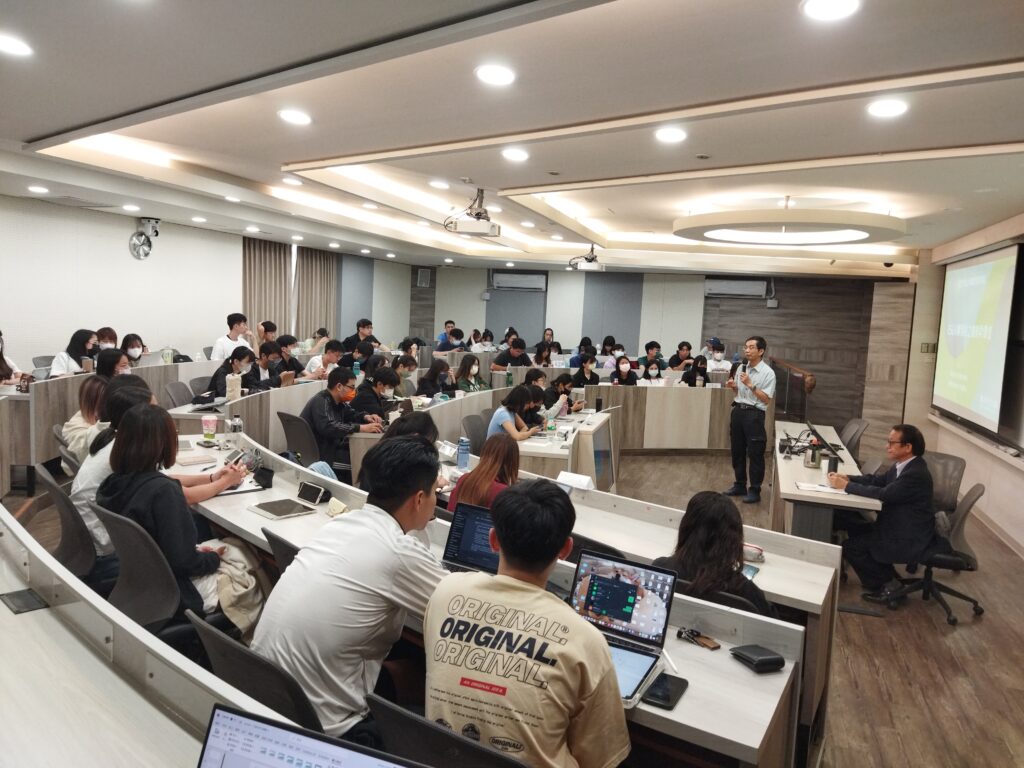 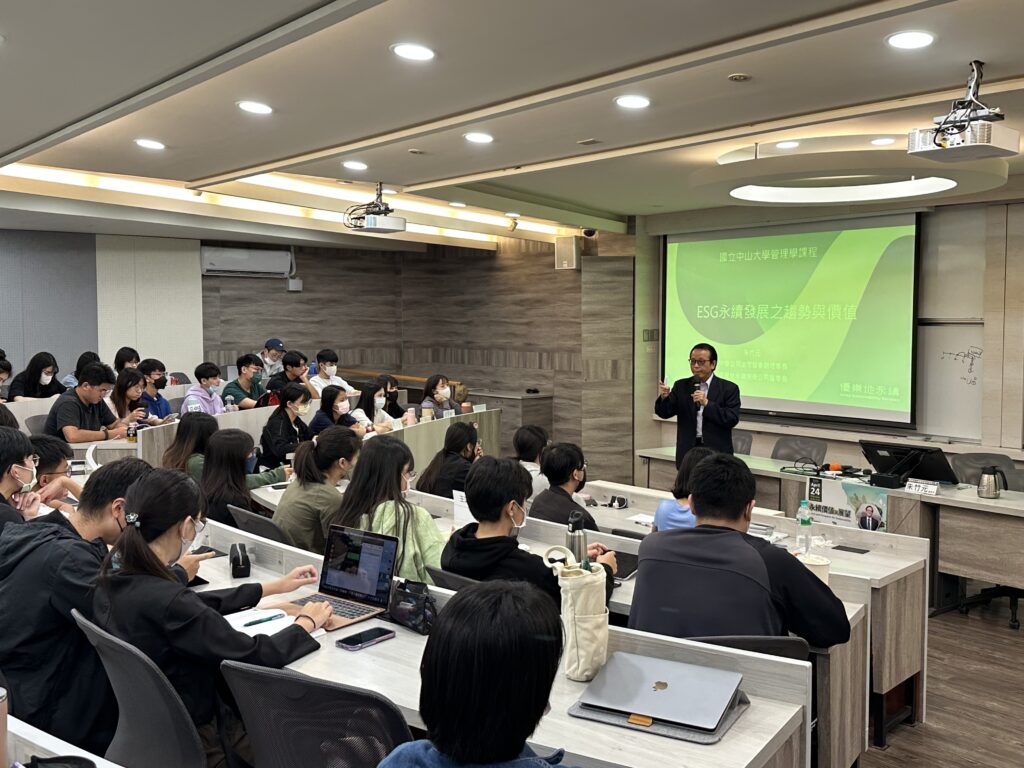 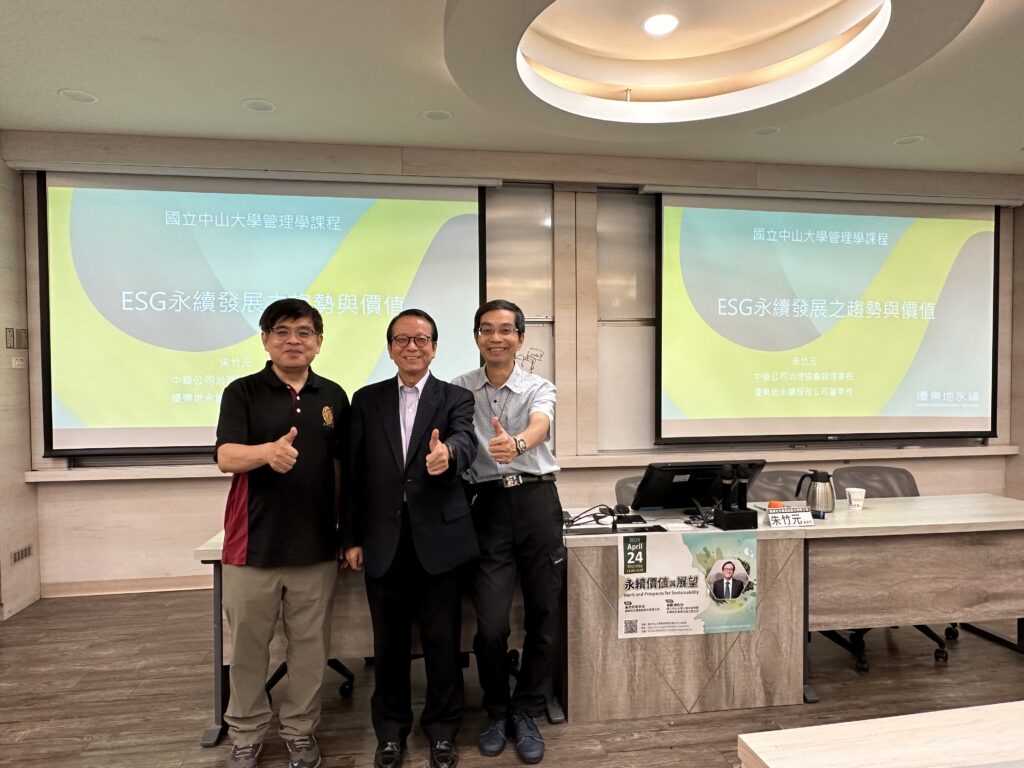 (Written by I-Chin Lo, Department of Business Management / Edited by ORSA) 【College USR】Introduction to Consumer Protection Law The Office of Responsibility and Sustainability Actions of the College of Management invited Shu-Ching Hsu, Deputy Secretary General of the Taiwan Consumer Protection Association, to speak at the College on May 5, 2023, on the topic of “Introduction to Consumer Protection Law.” Professor Yi-Feng Chou of the Department of Finance opened the seminar with a speech. 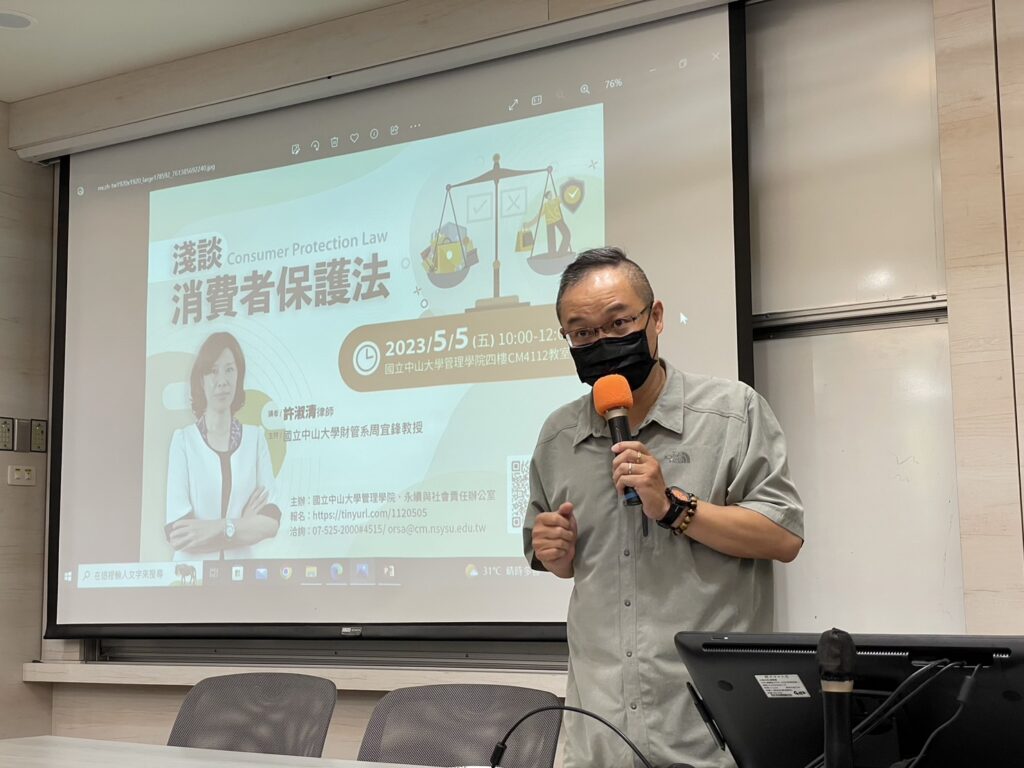 In her lecture, Shu-Ching Hsu reminded the students that as consumers, they should always be vigilant and should not easily believe in advertisements and false propaganda, but rather should protect their rights and interests as consumers. She also discussed issues and case studies related to consumer protection law with the students and shared her own experience in fighting for the rights of consumers shopping online, shopping in physical stores, and signing contracts at gyms. Shu-Ching Hsu encouraged the students to pay more attention to their rights in their daily lives, to understand the relevant laws and regulations, and to protect their rights in a timely manner. She highlighted the importance of legal protection of consumer rights, stating: “Legal protection is not about protecting good people or bad people; it protests people who know the law.” The purpose is to tell students that only by understanding the relevant laws and regulations can they better protect their own rights. This presentation gave students a deeper understanding of consumer protection. Shu-Ching Hsu is a lawyer who has been practicing consumer protection law for many years. She has rich experience in the field and is highly trusted and respected by consumers and society. We believe that through this presentation, more people will have a more comprehensive understanding of consumer protection law and be better able to protect their own rights. 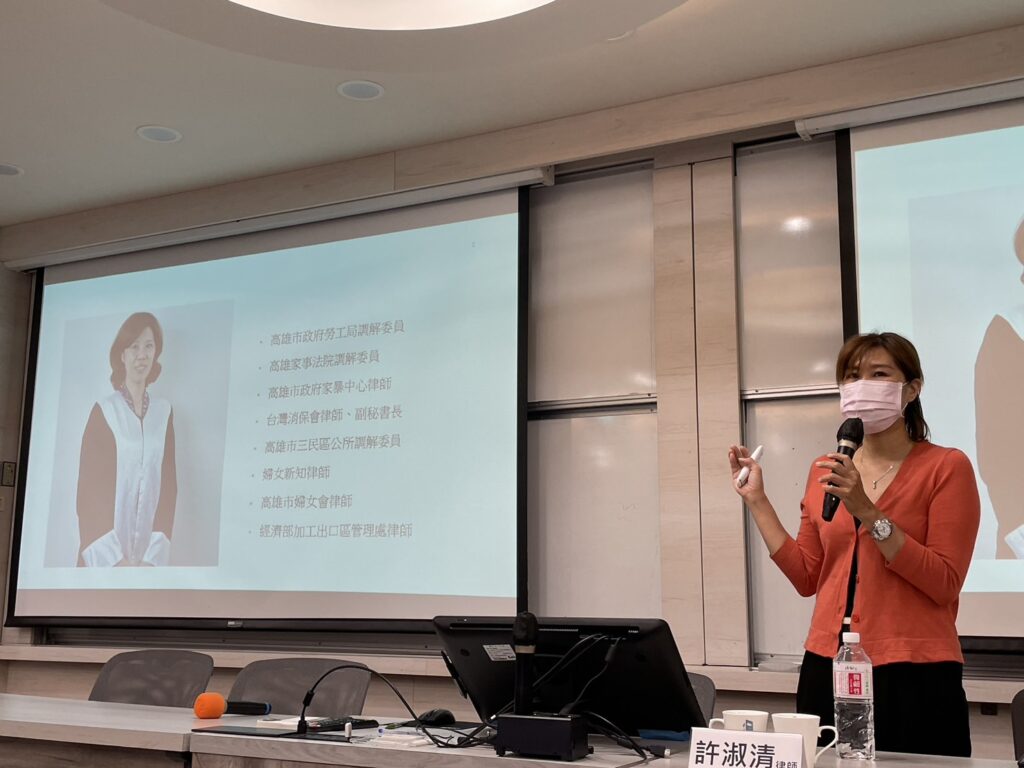 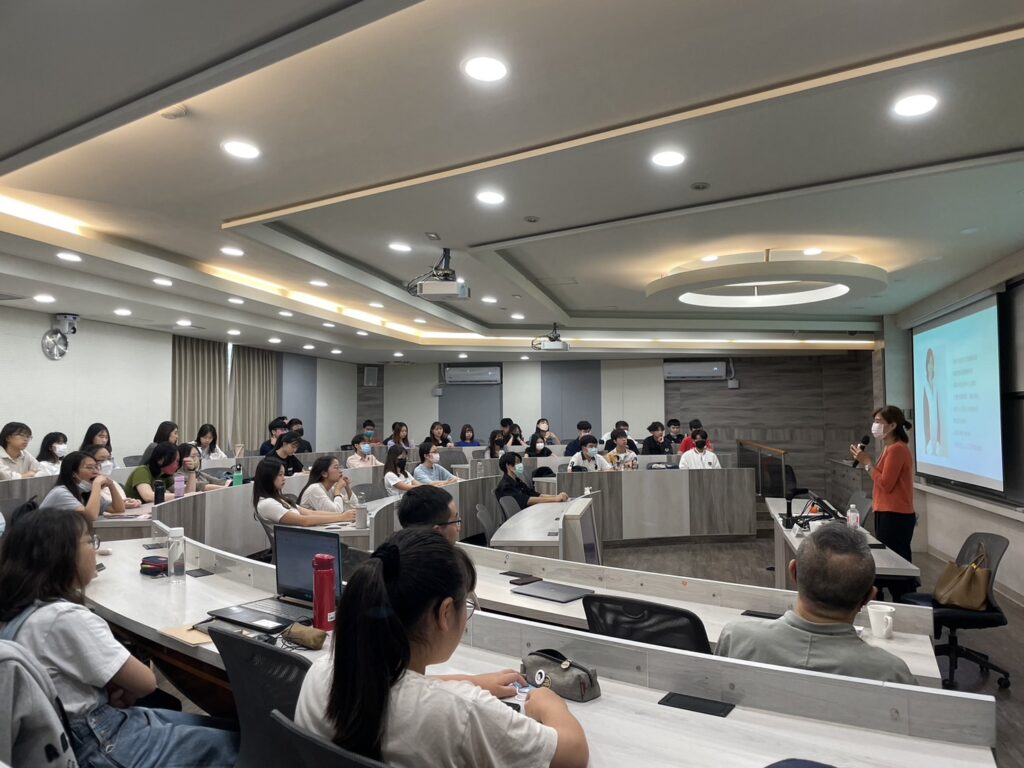 (Written by Yu-Ting Chang Chien, Department of Information Management / Edited by ORSA) |
 |
|
| ©2016 College of Management National Sun Yat-sen University. All rights reserved. | CCCM |